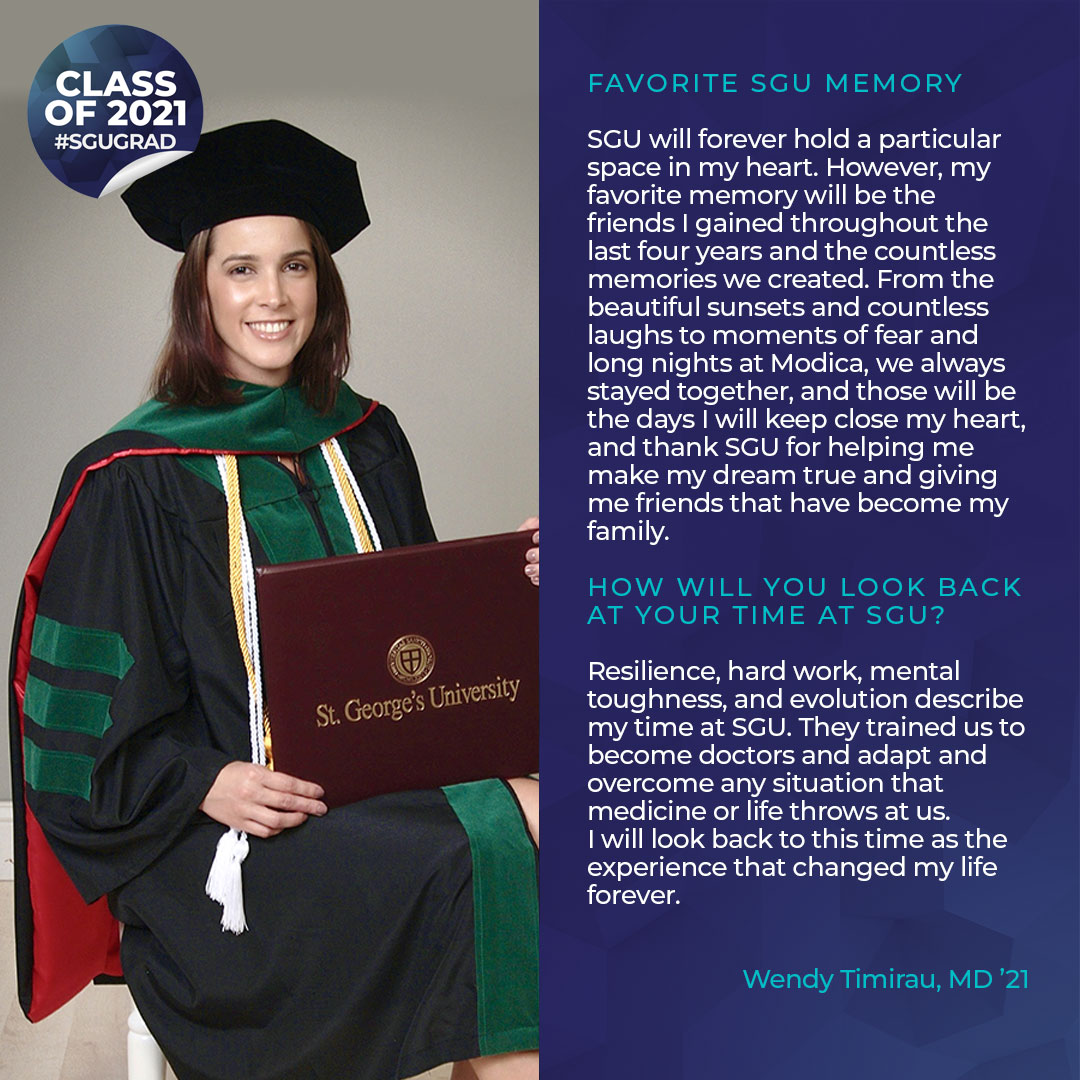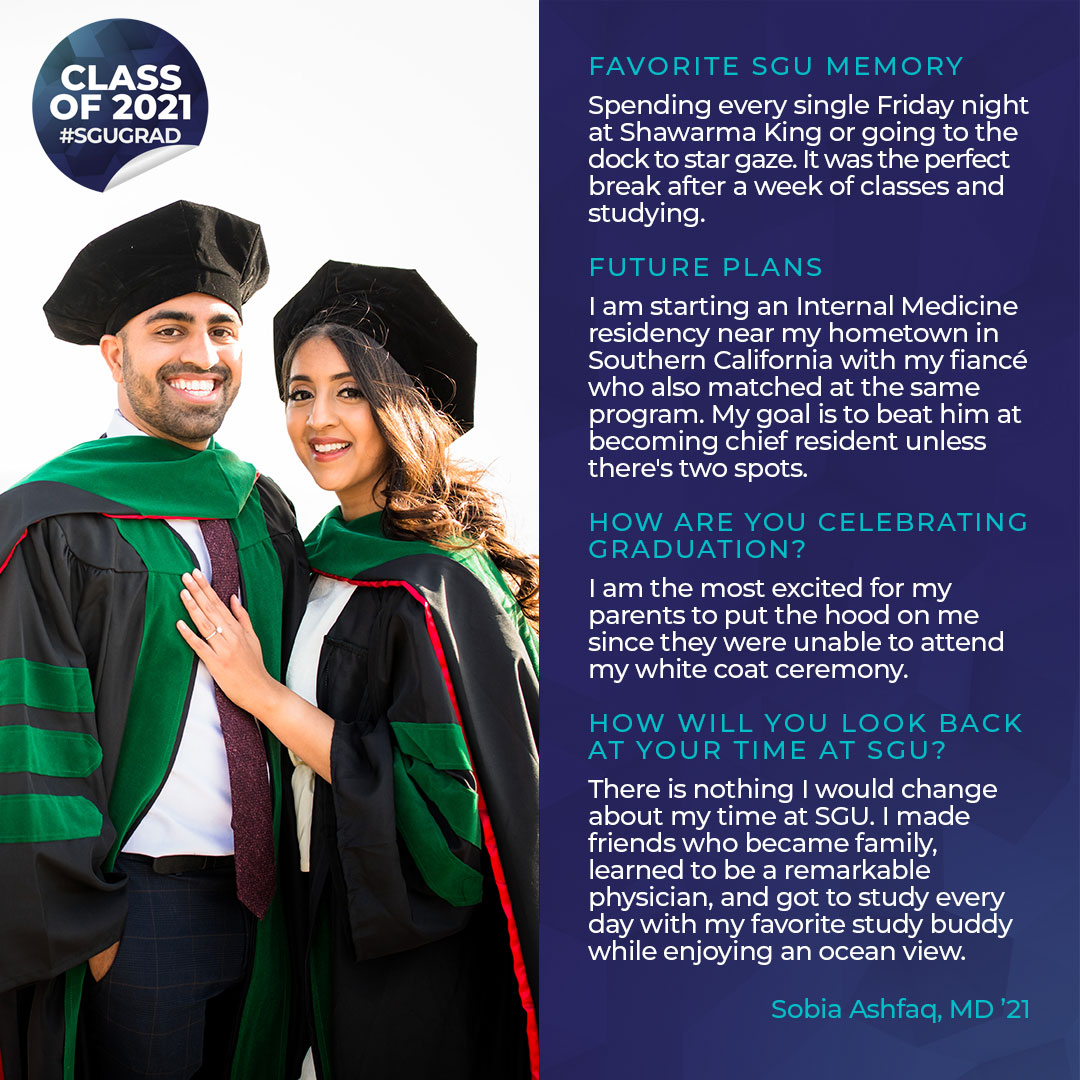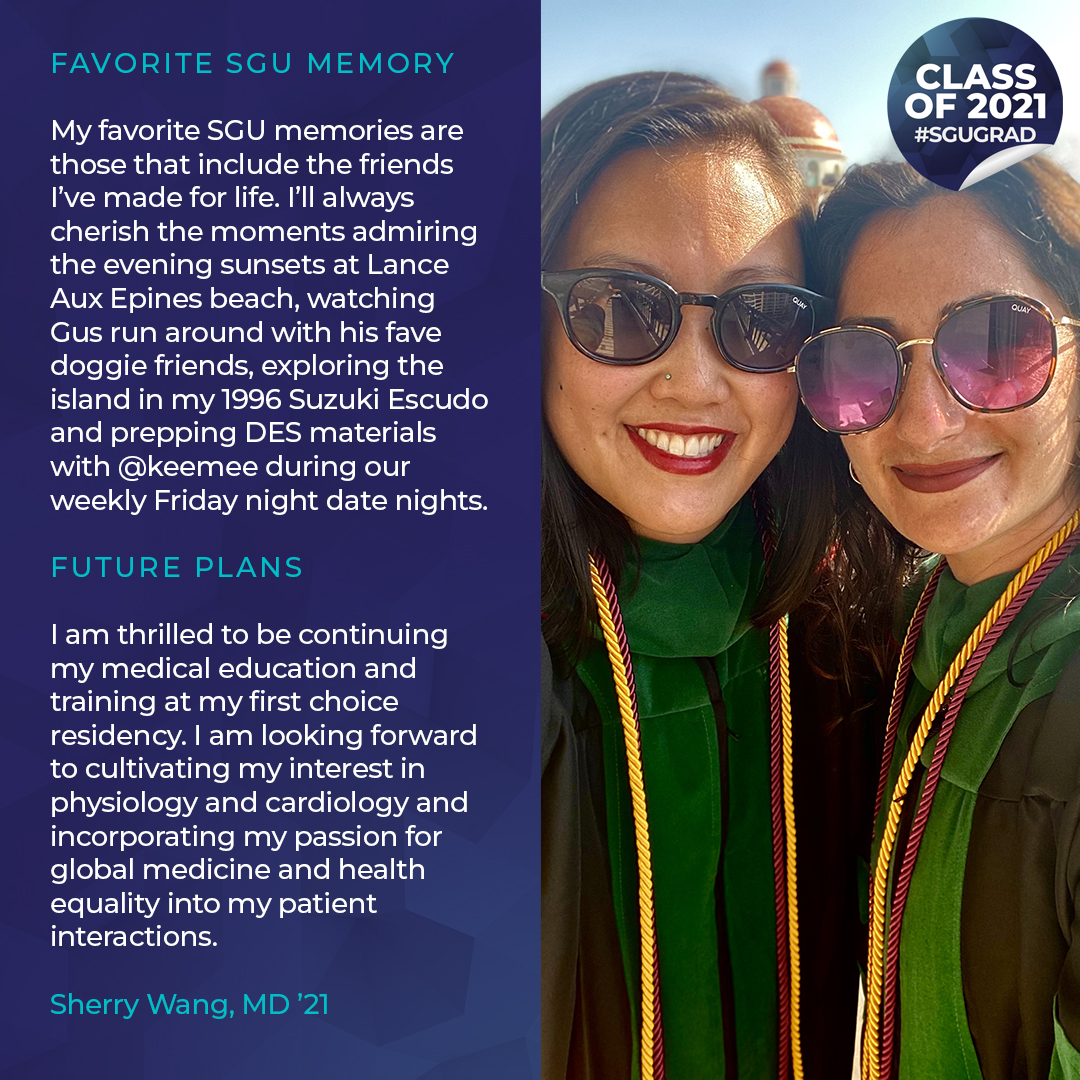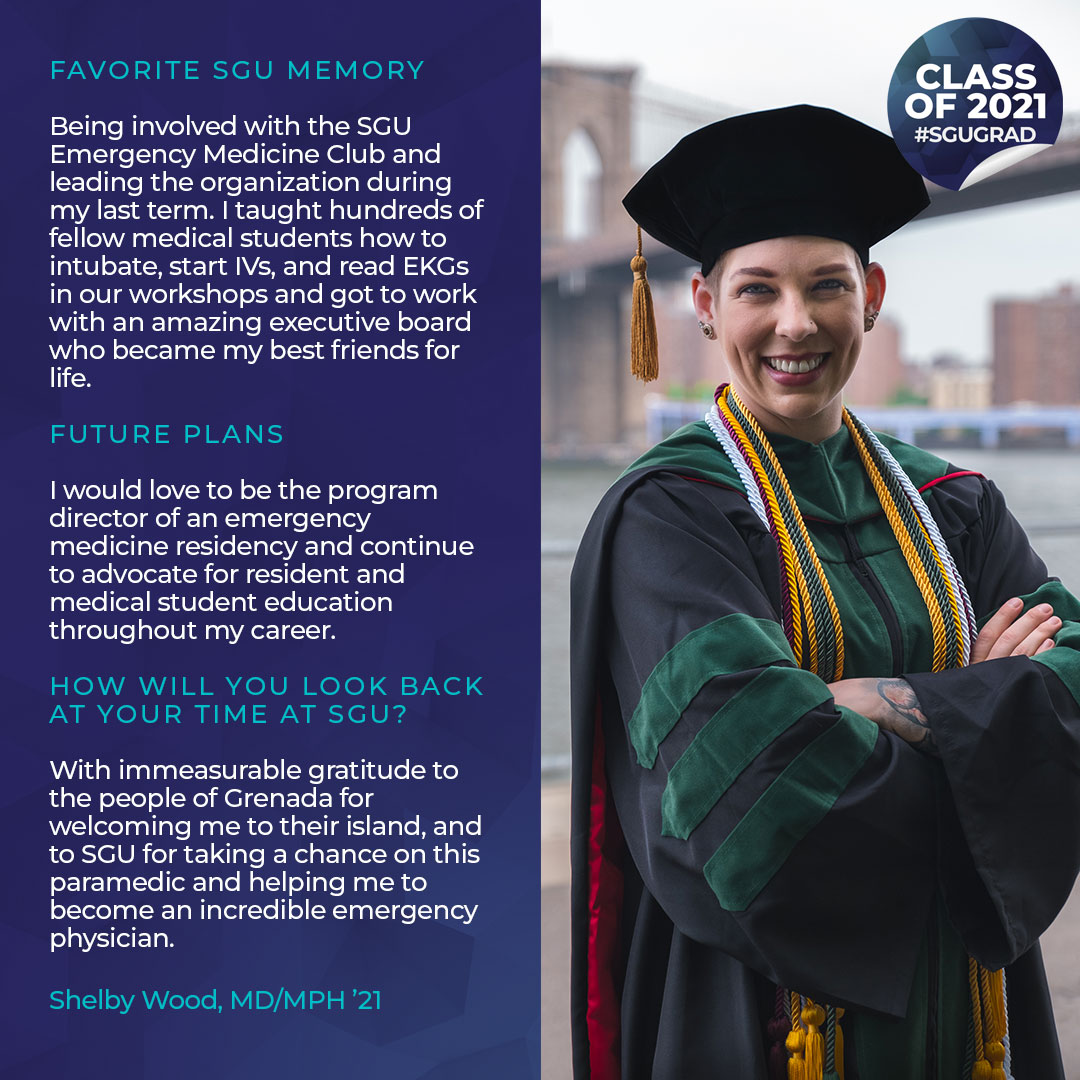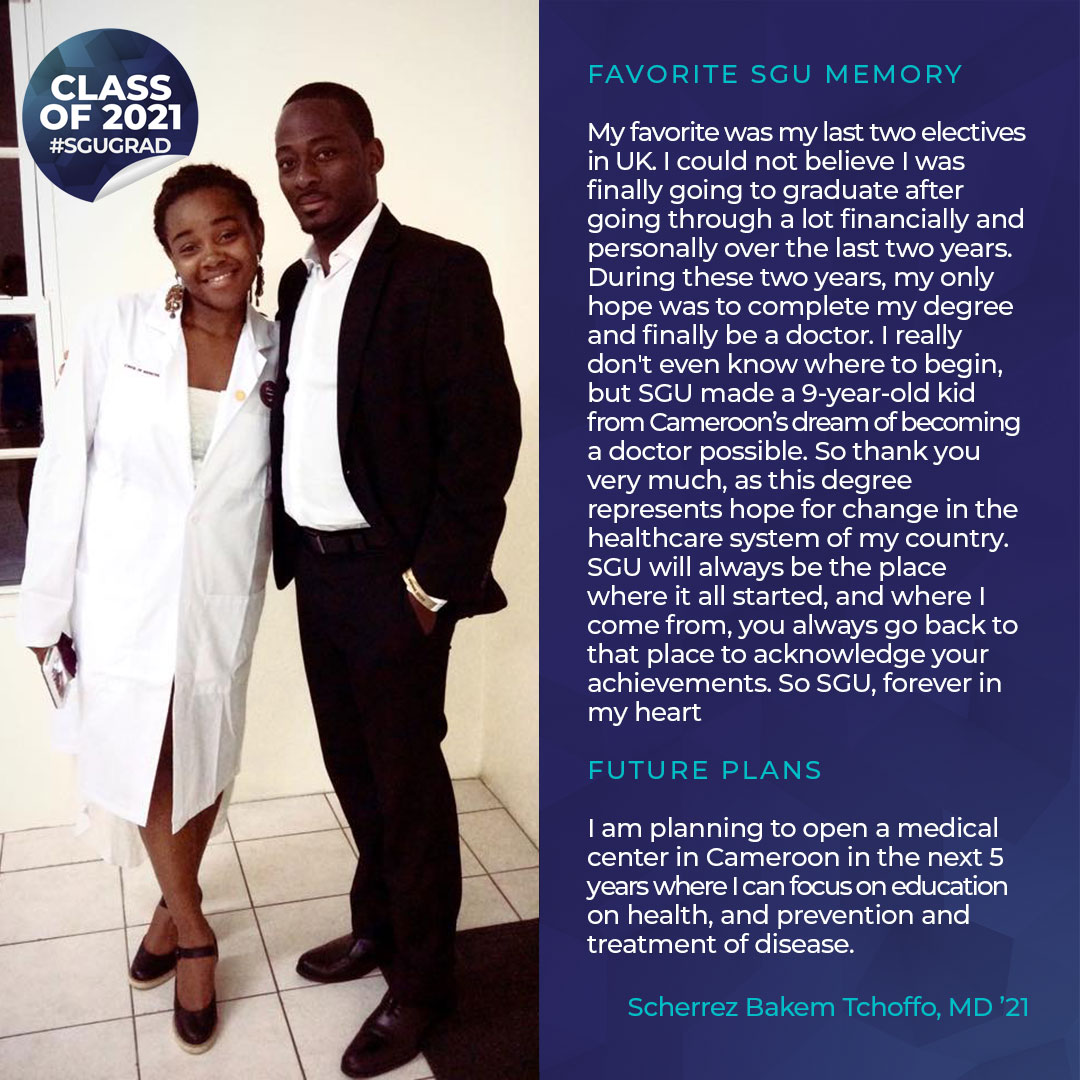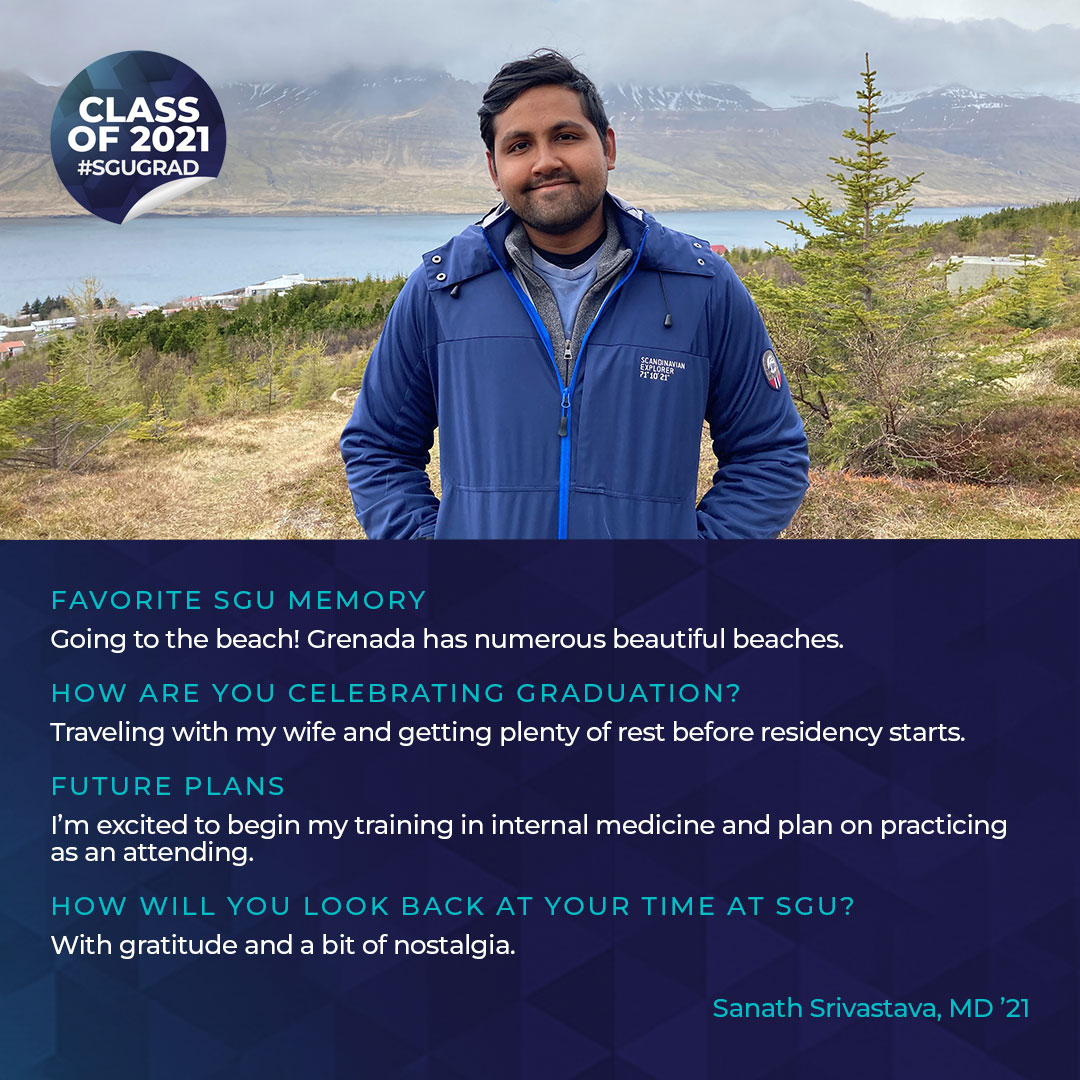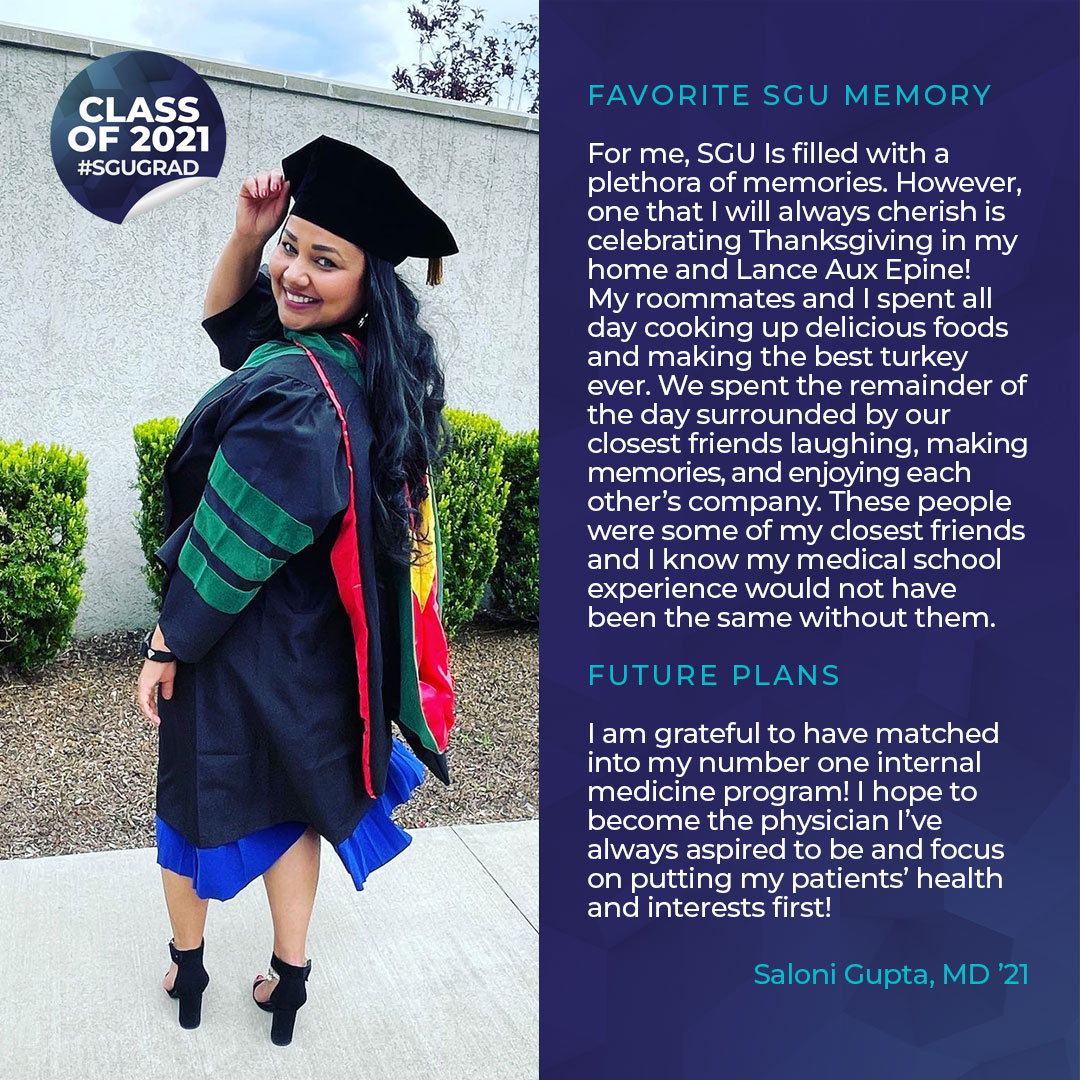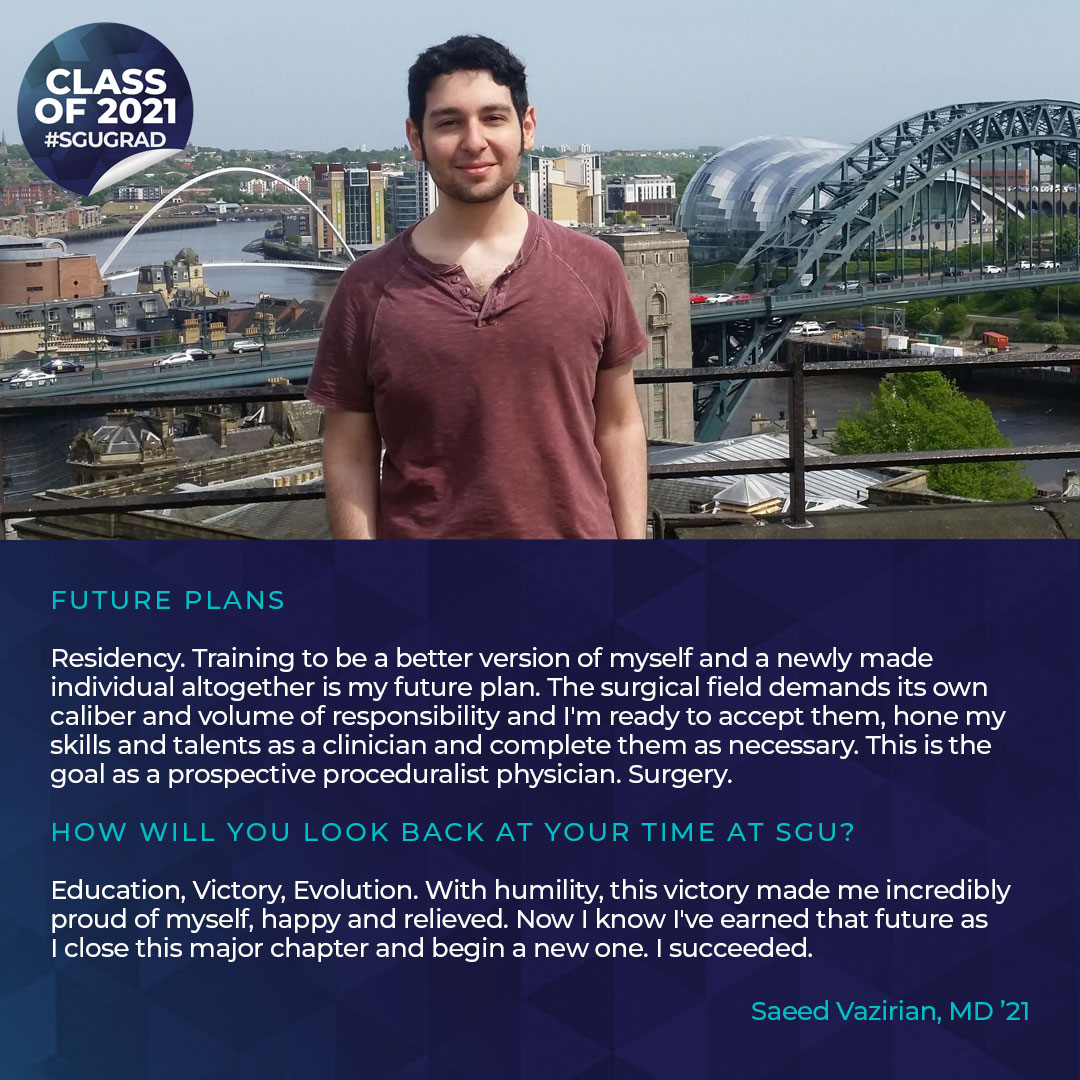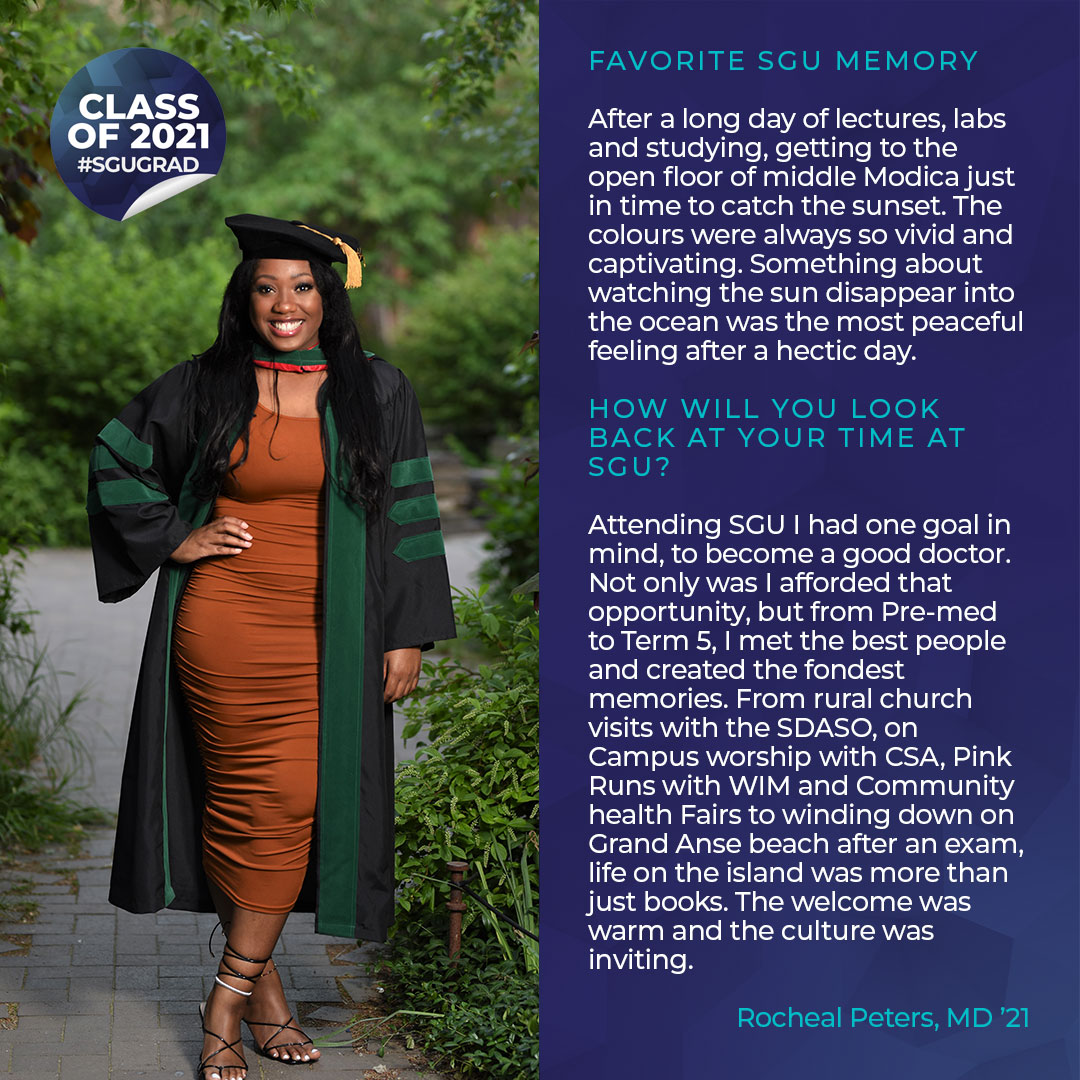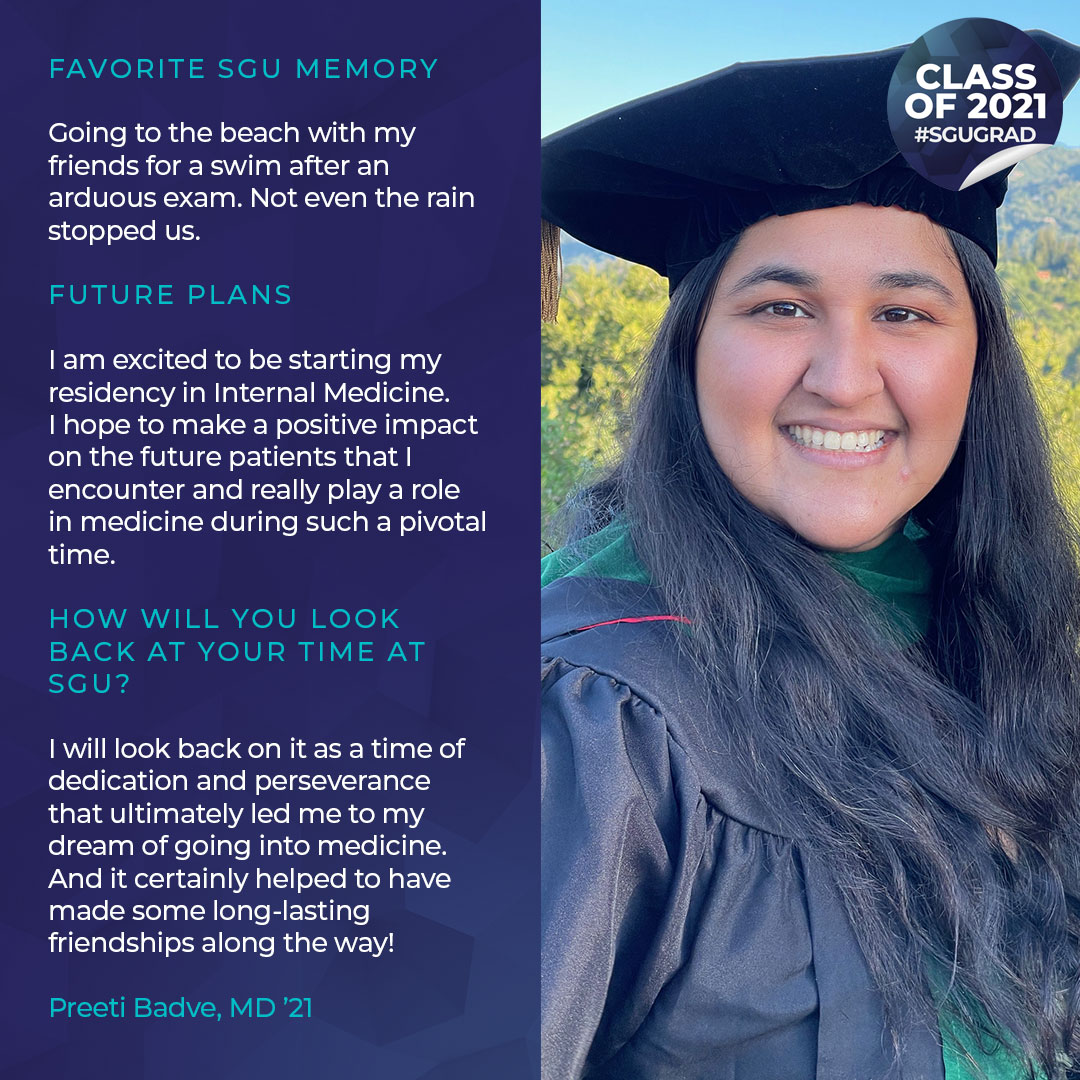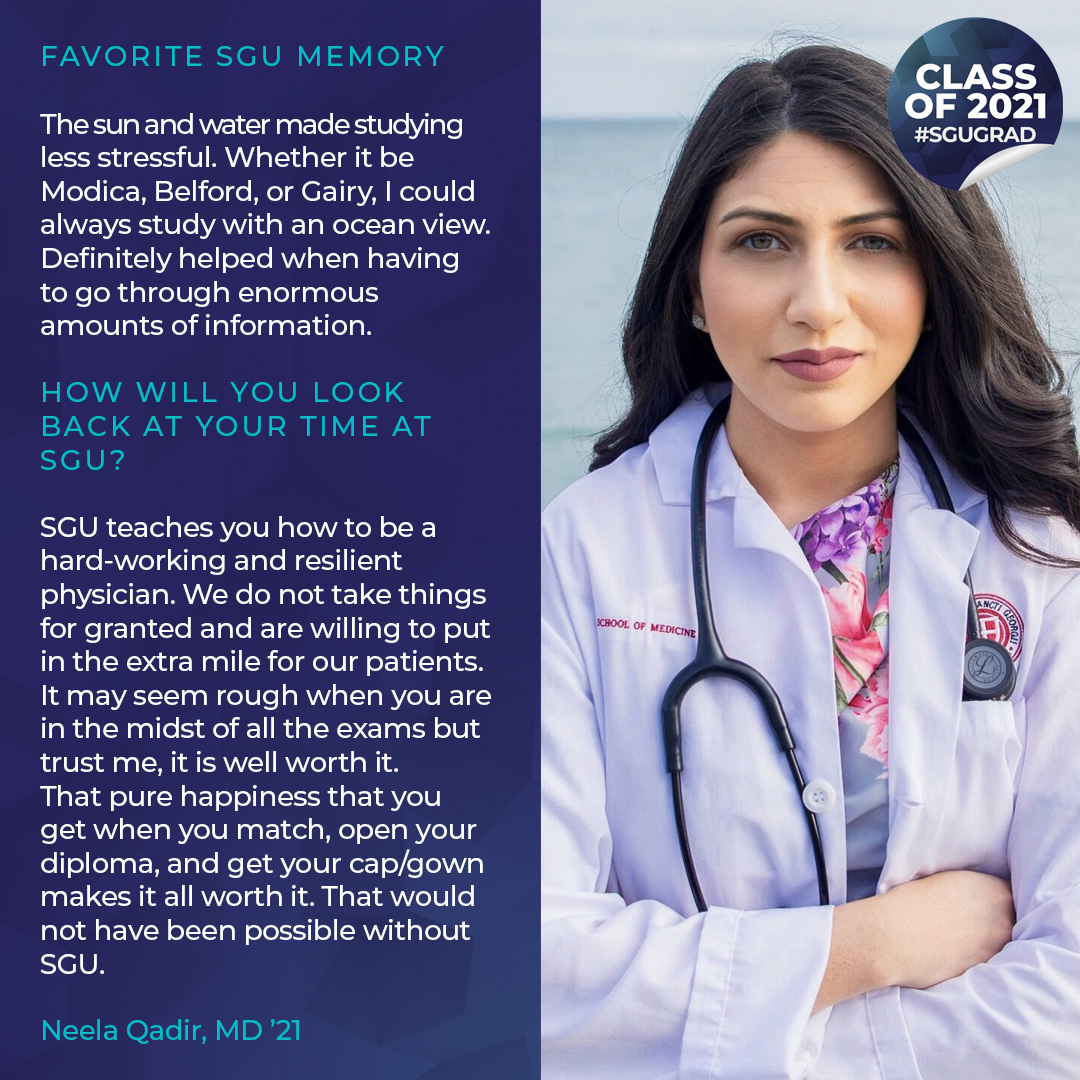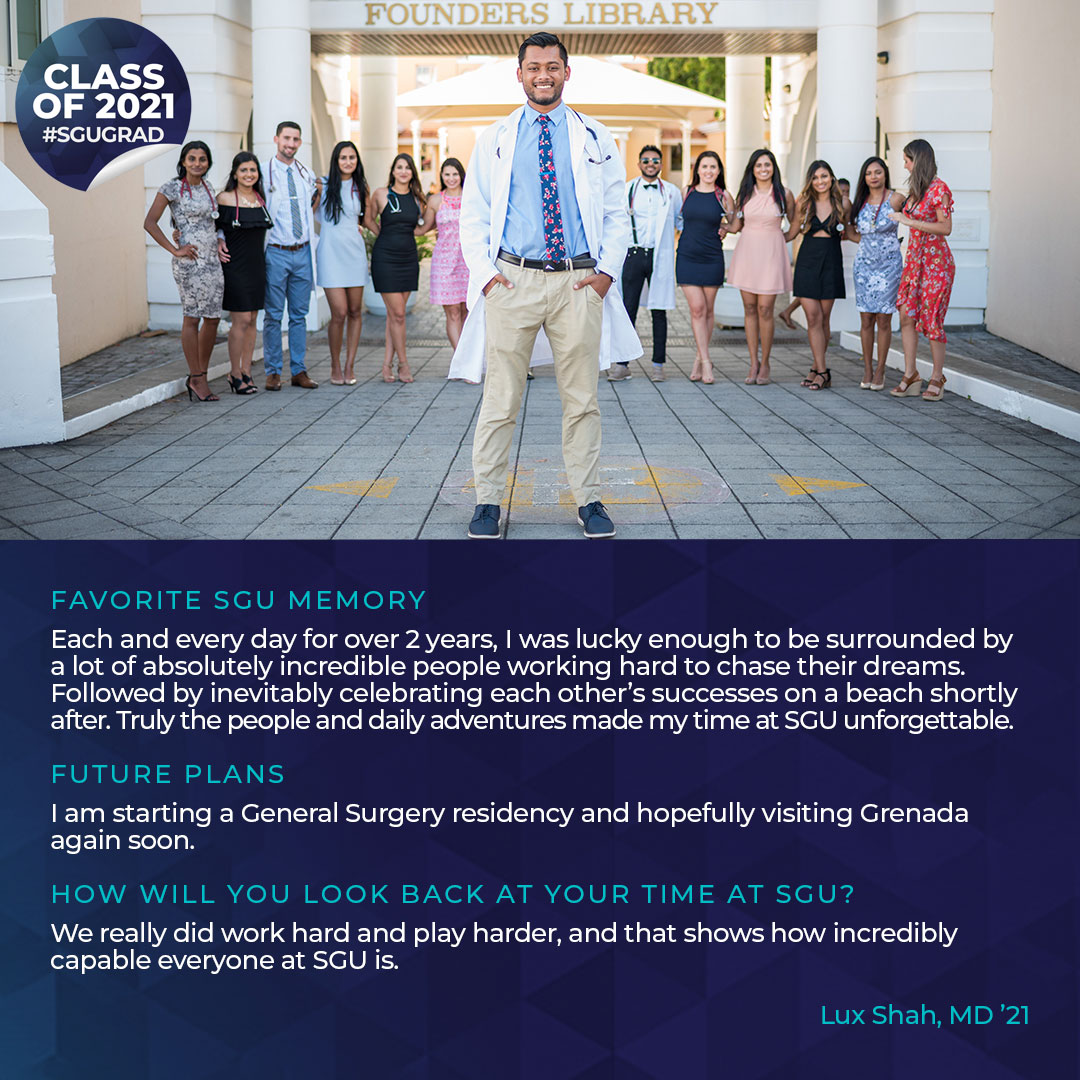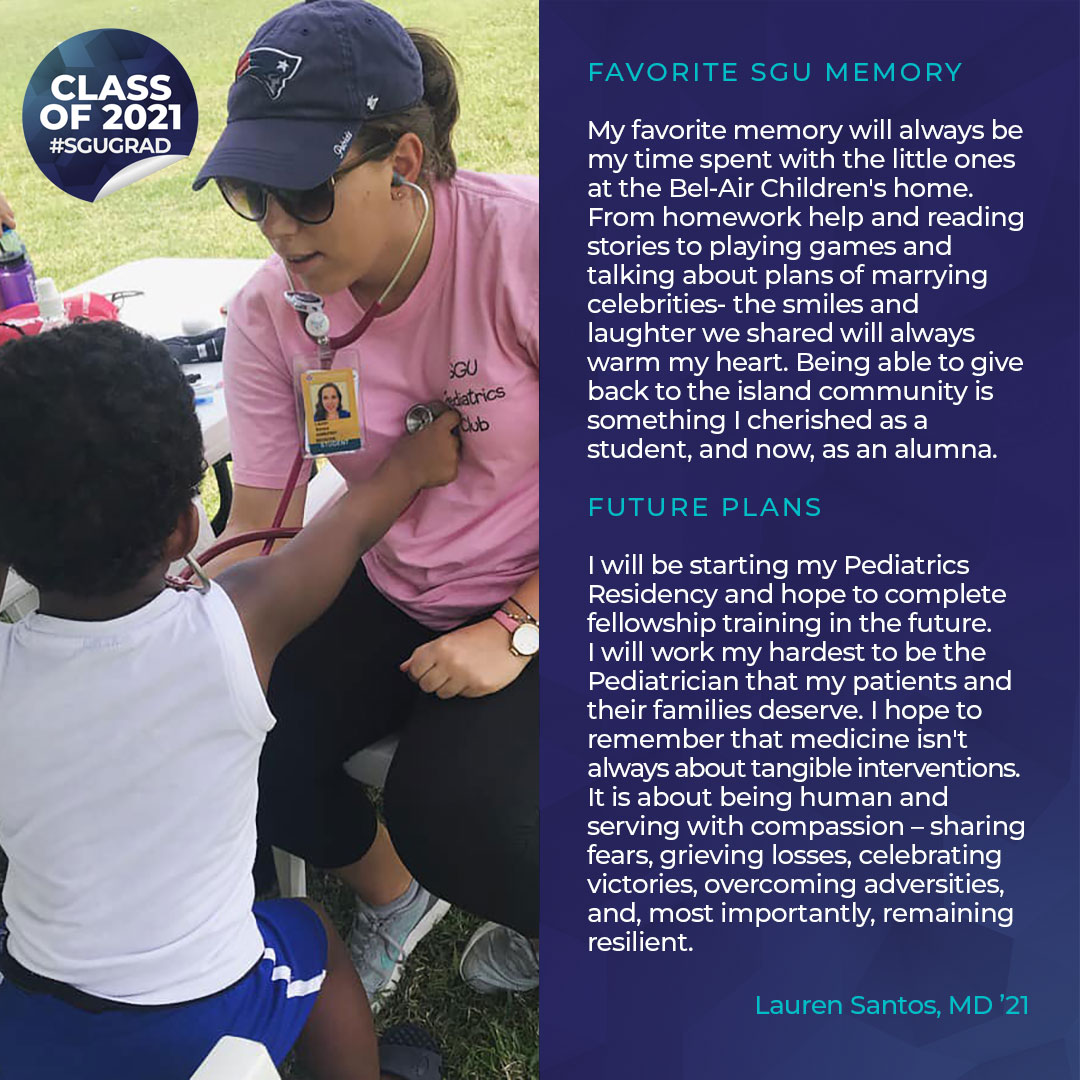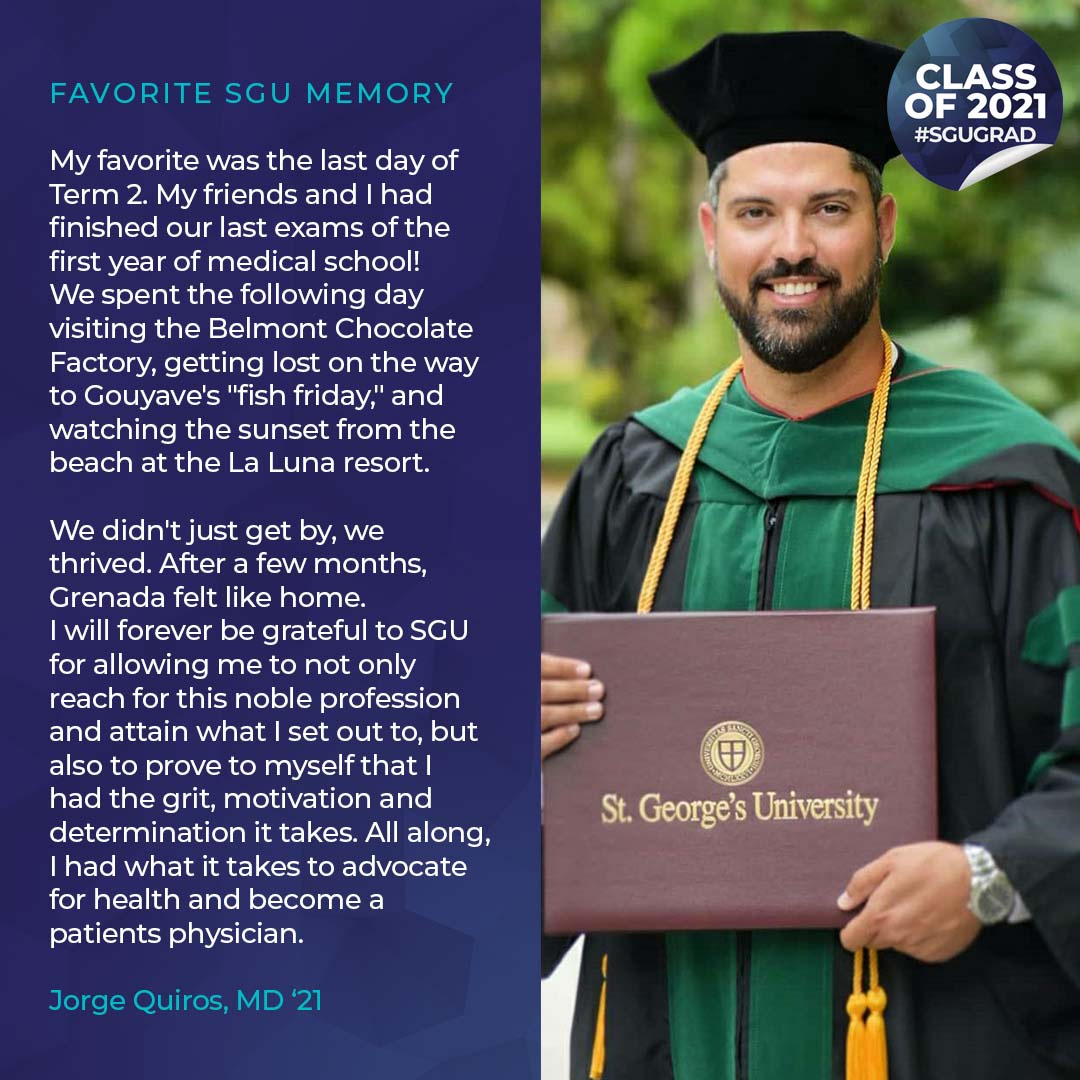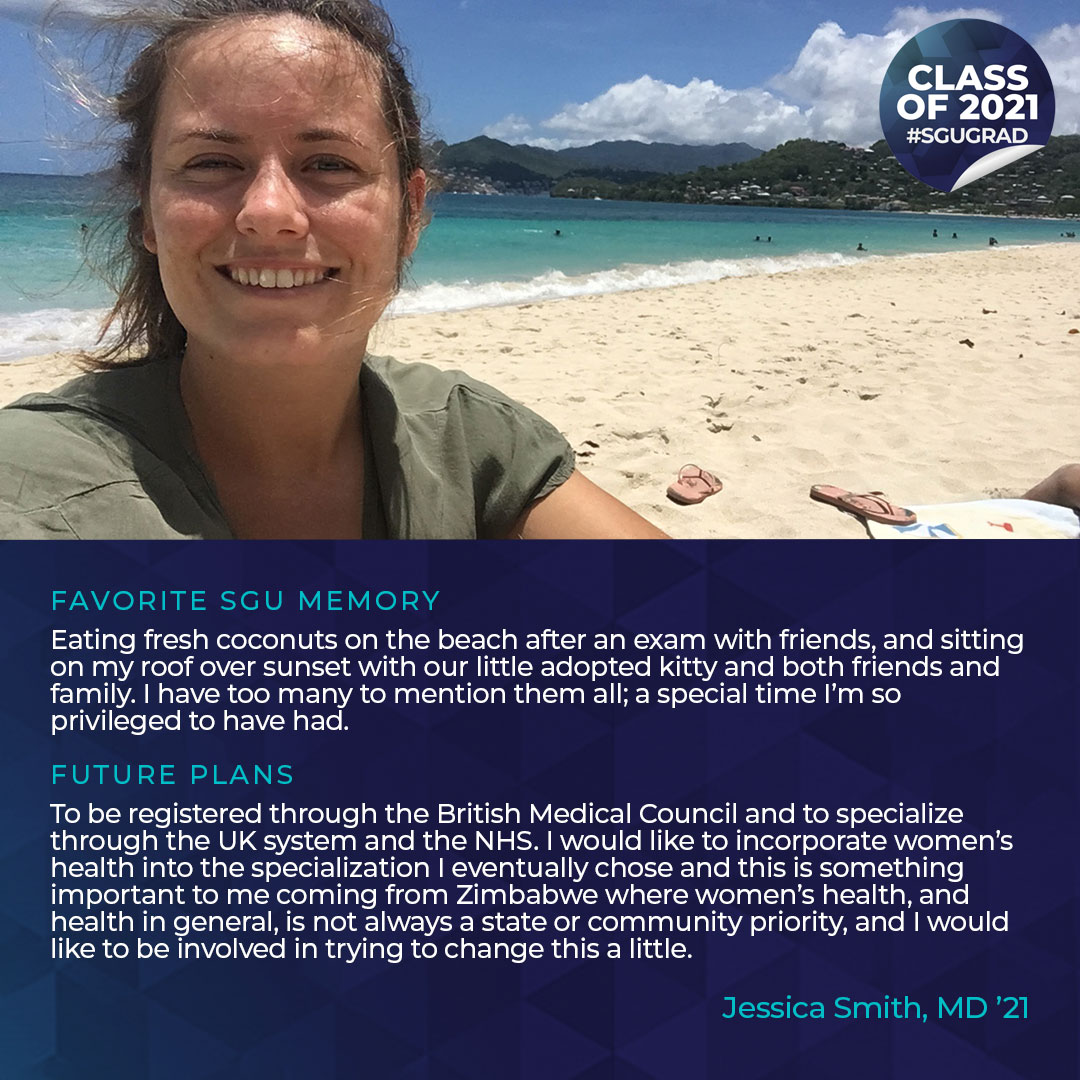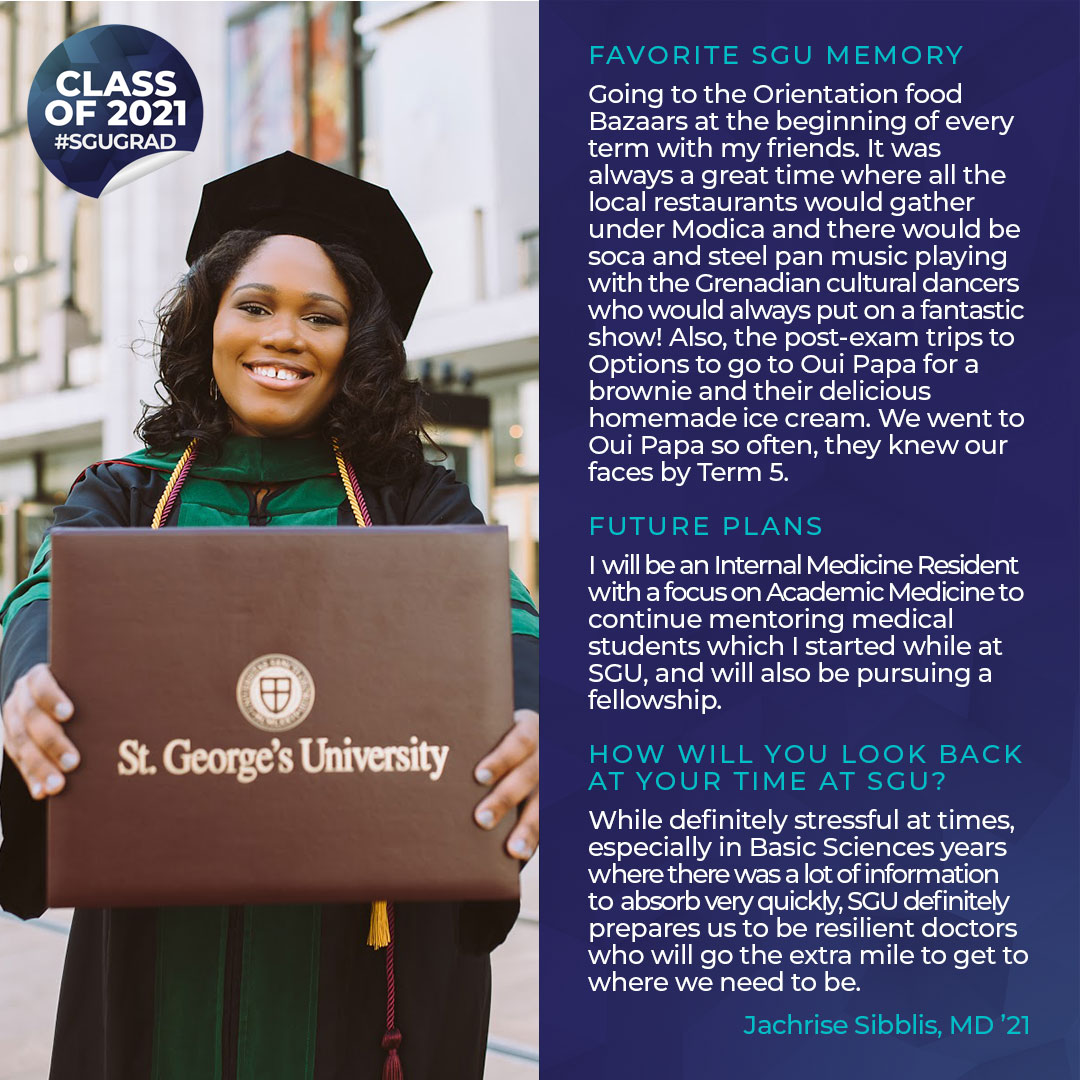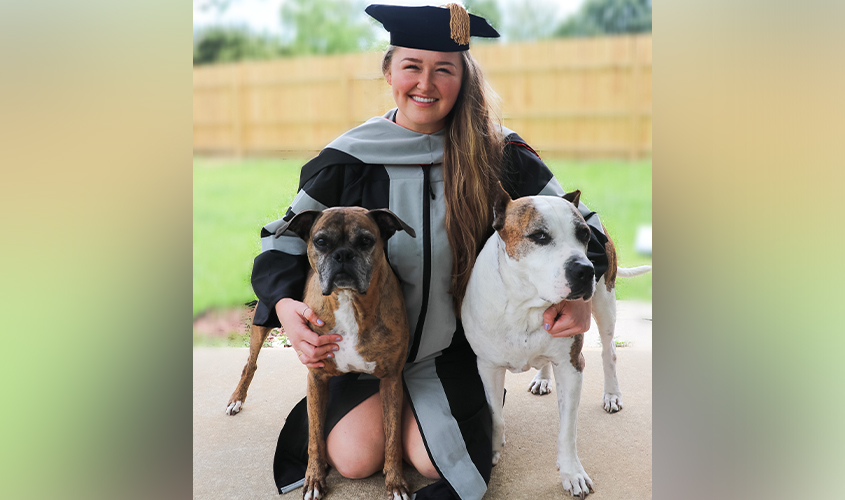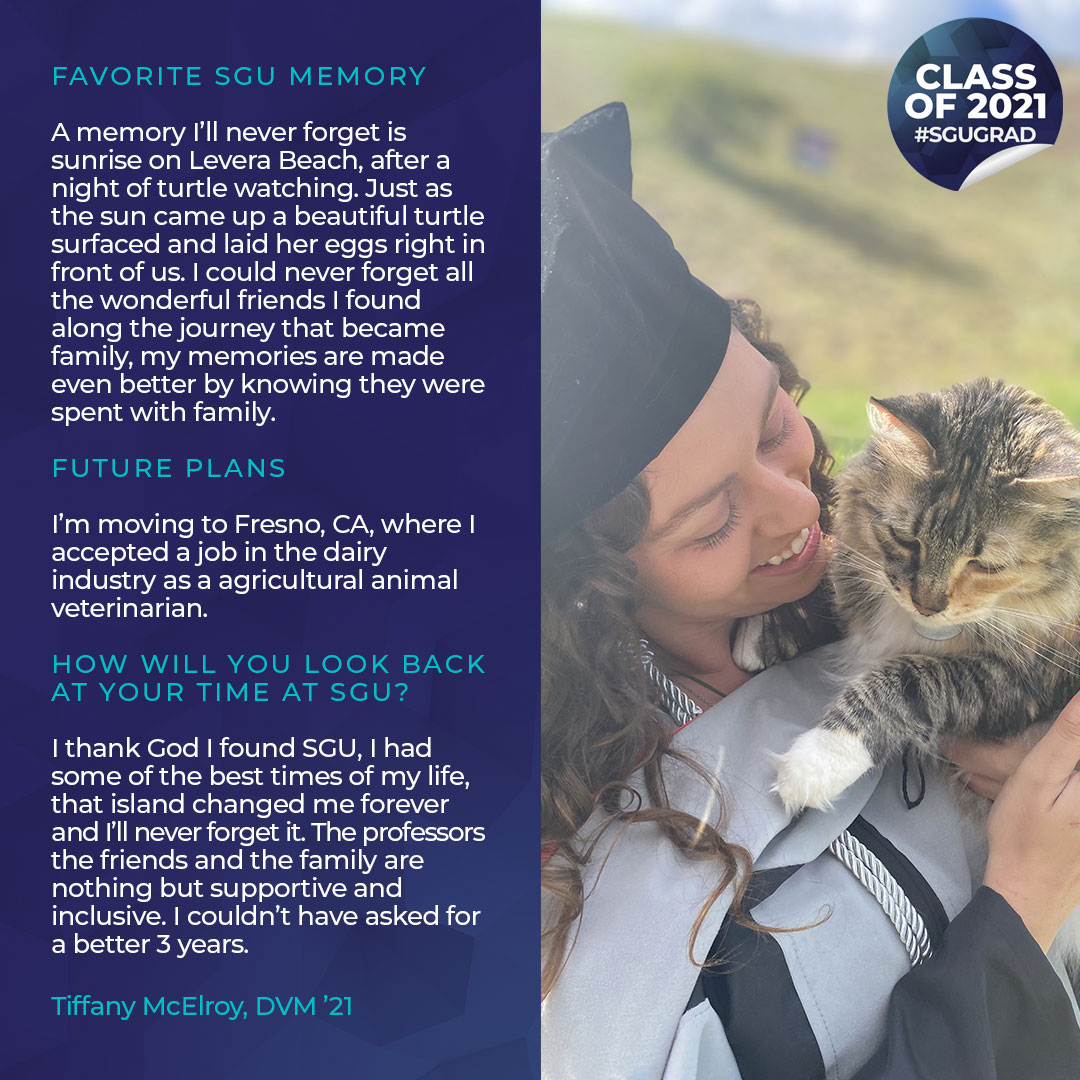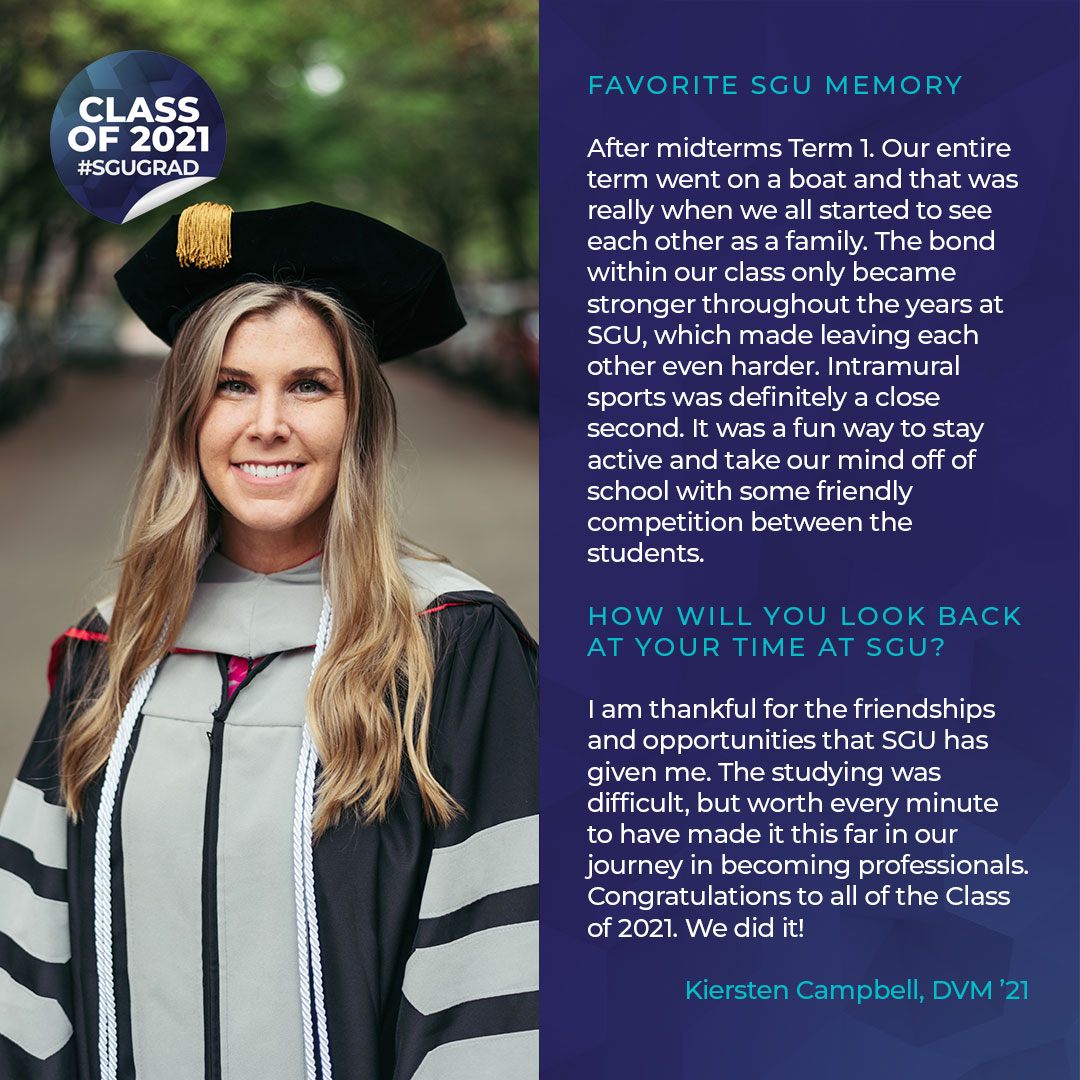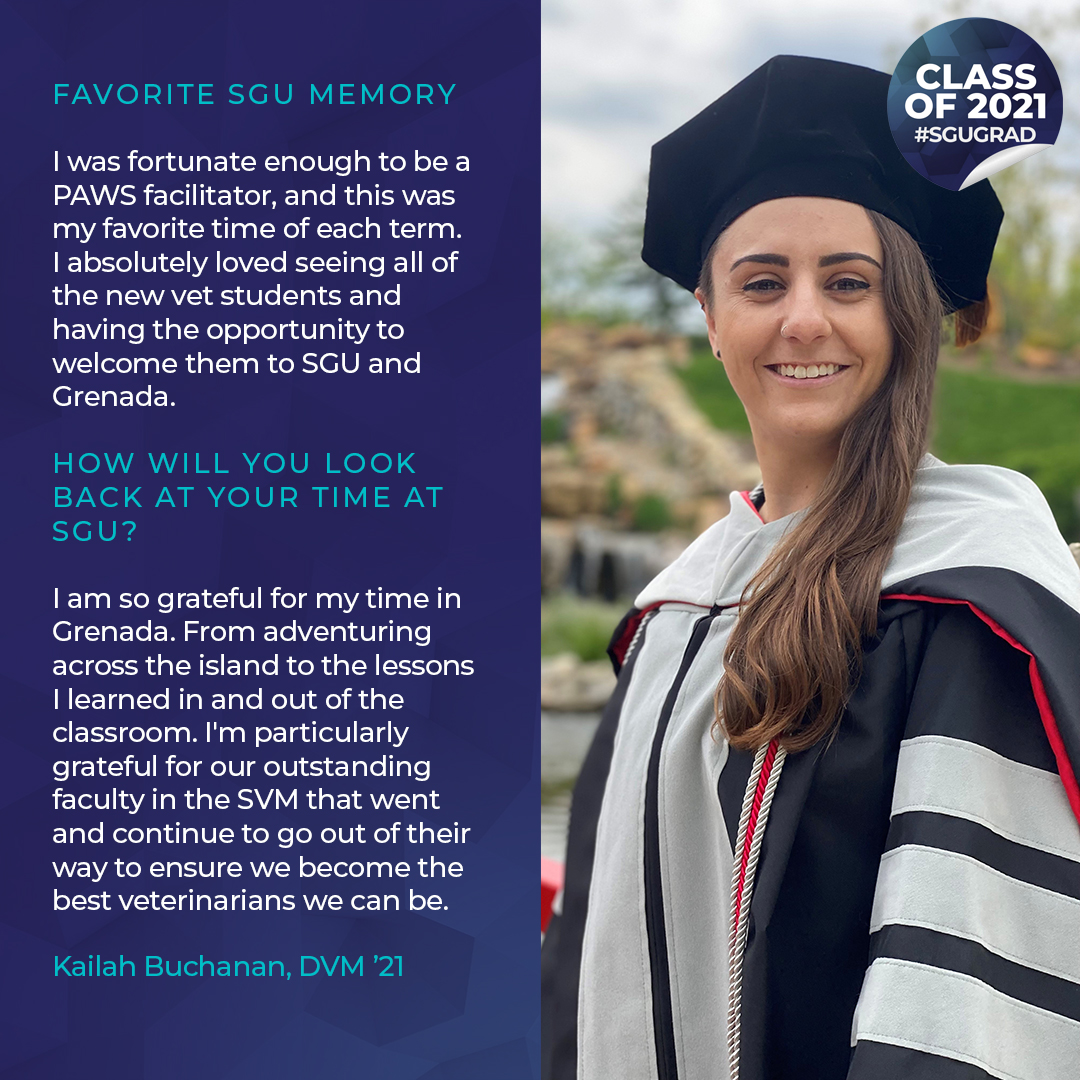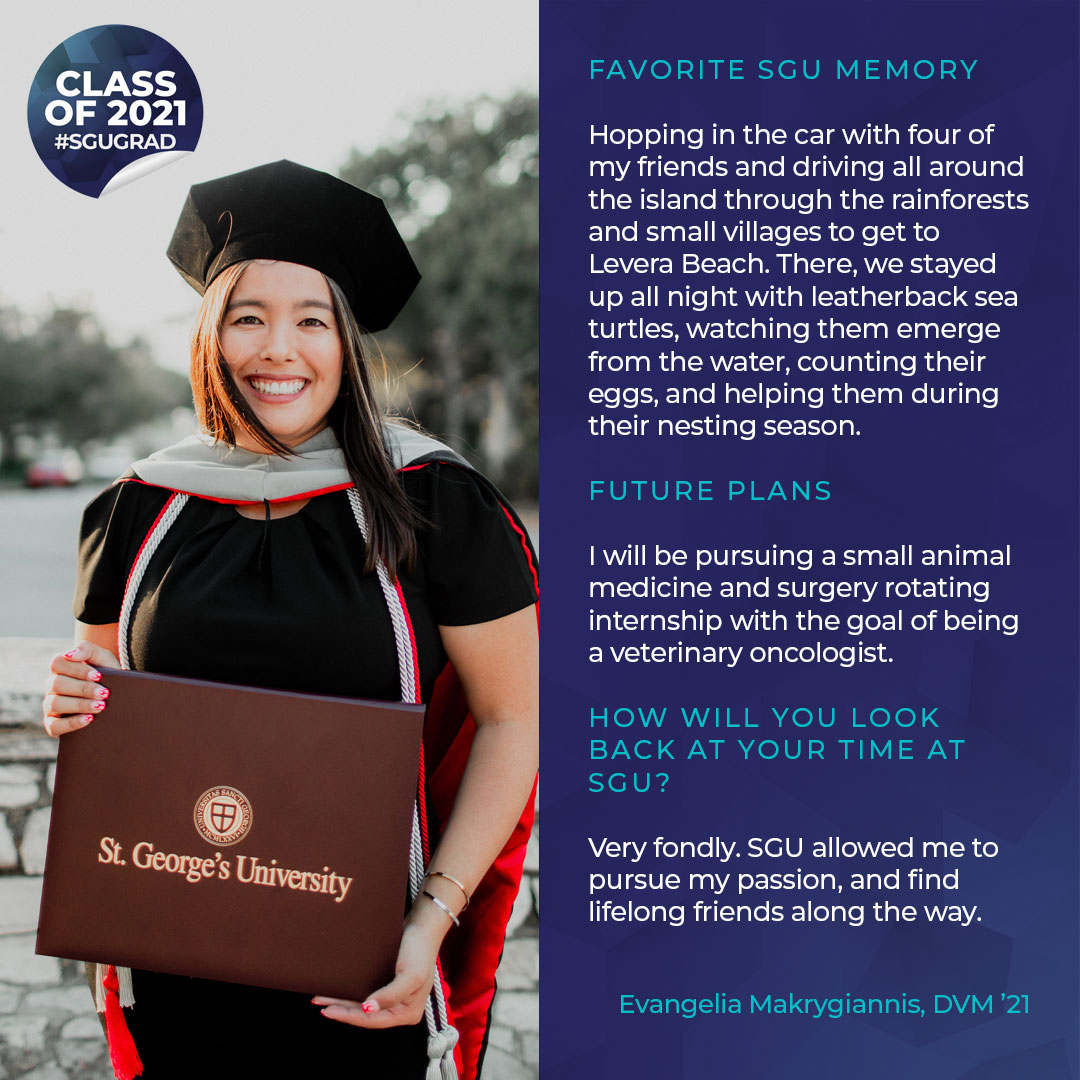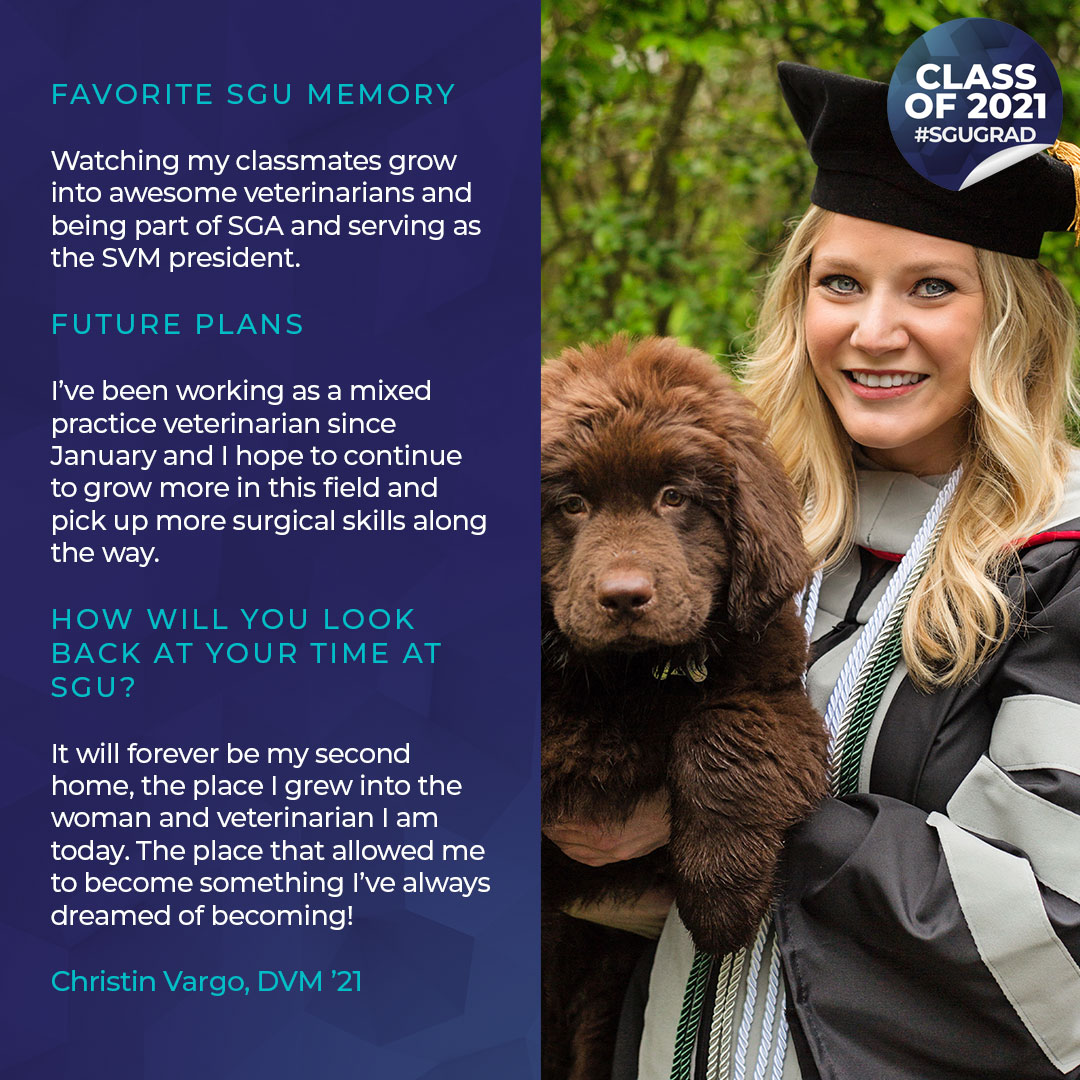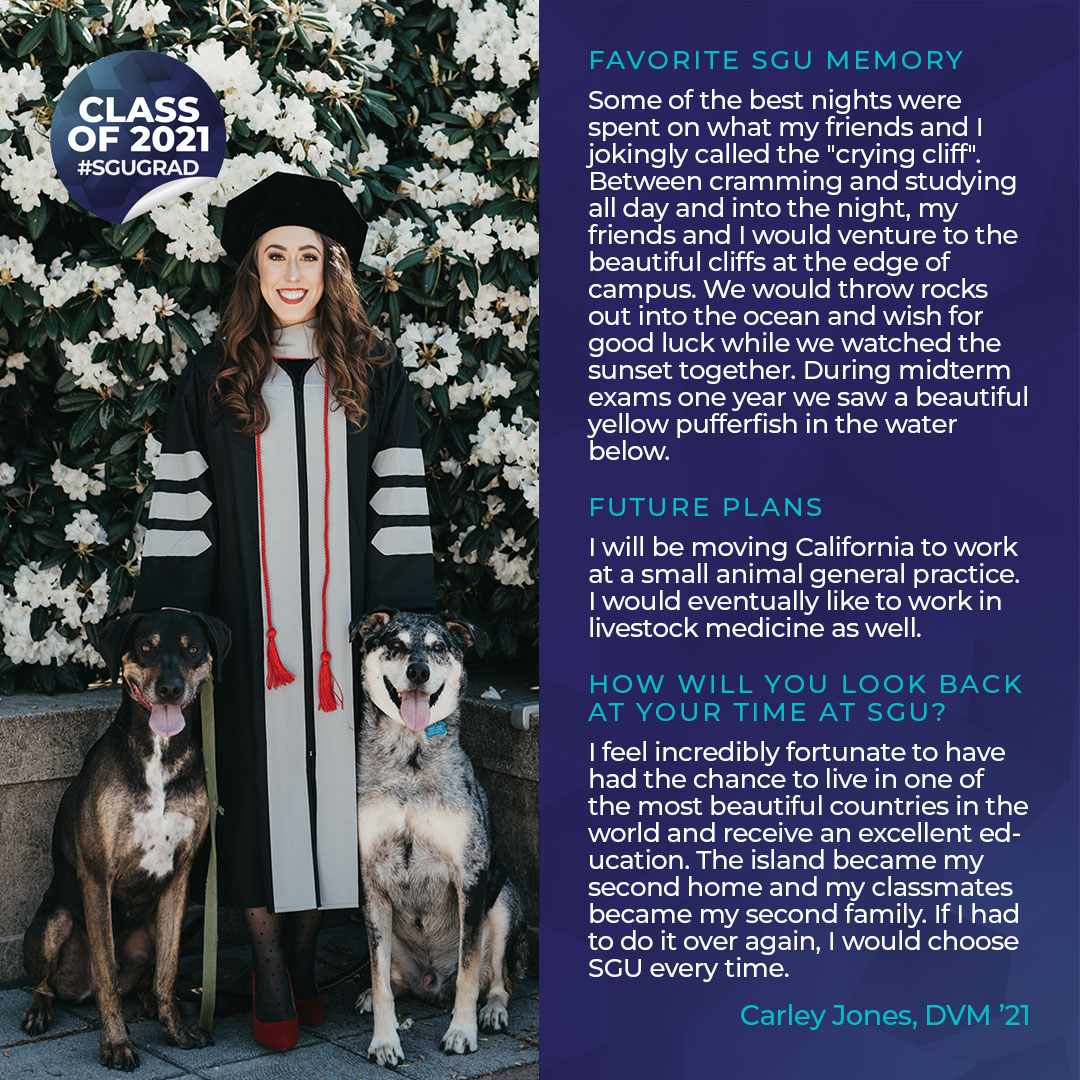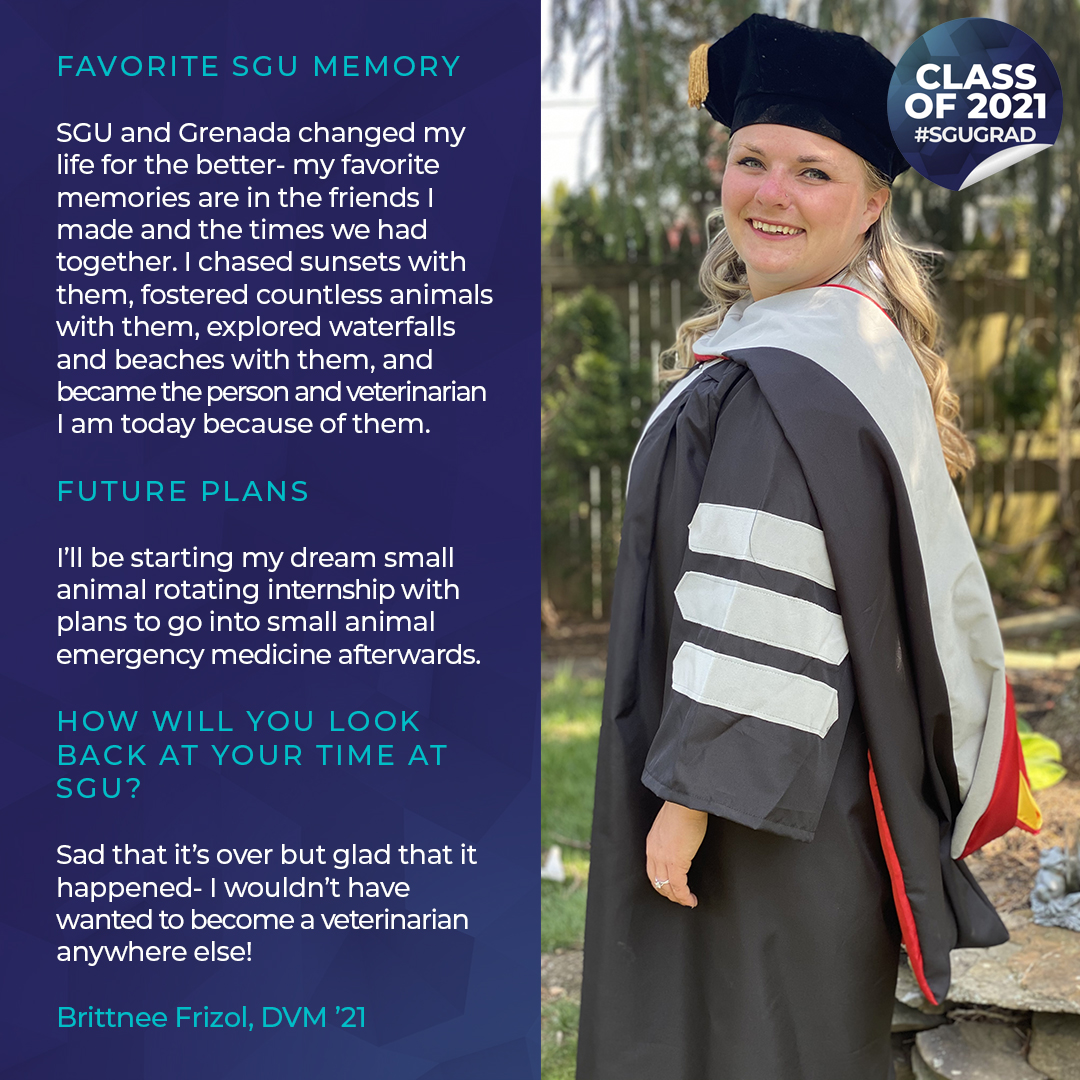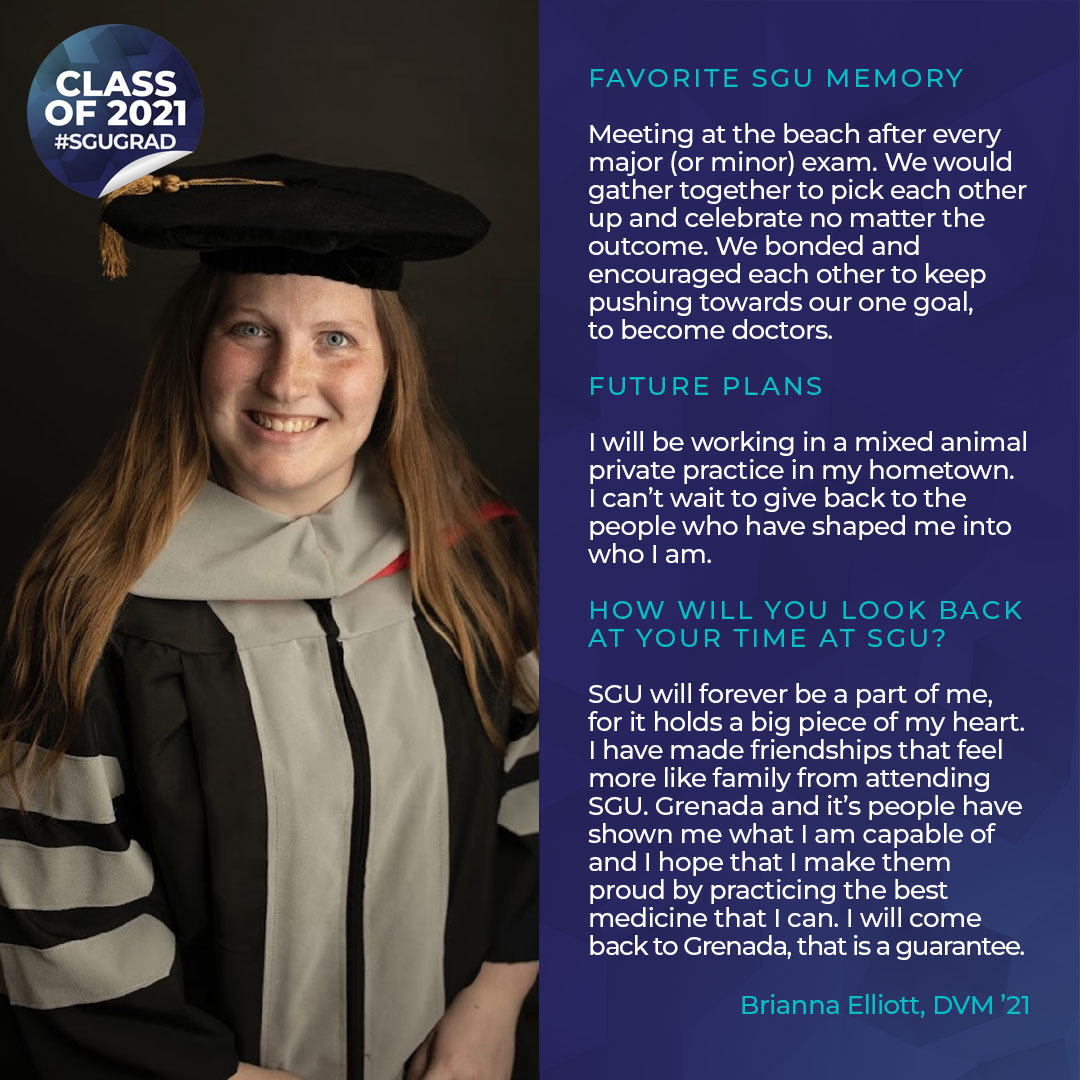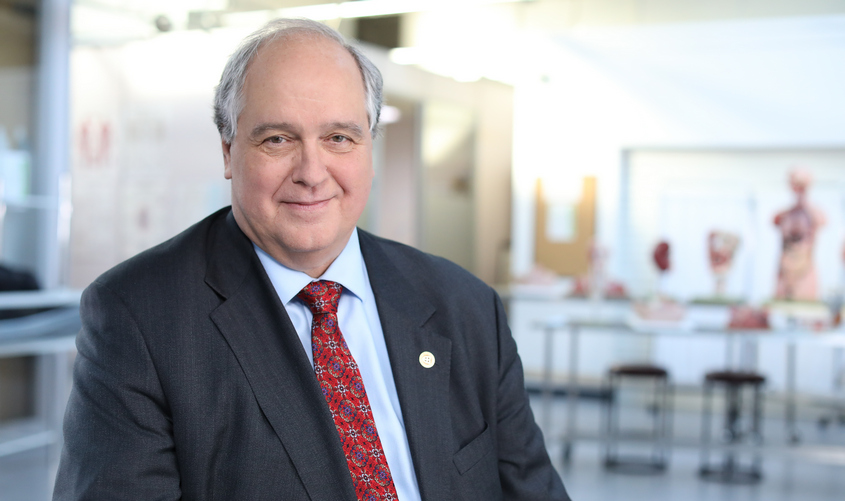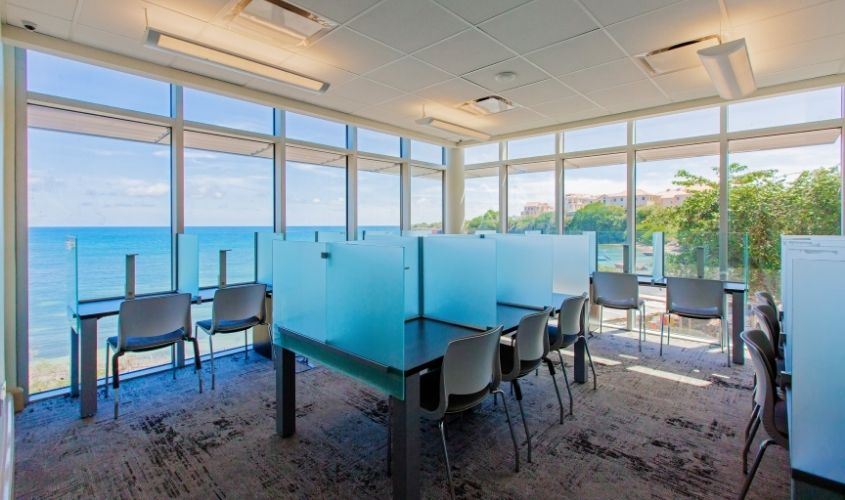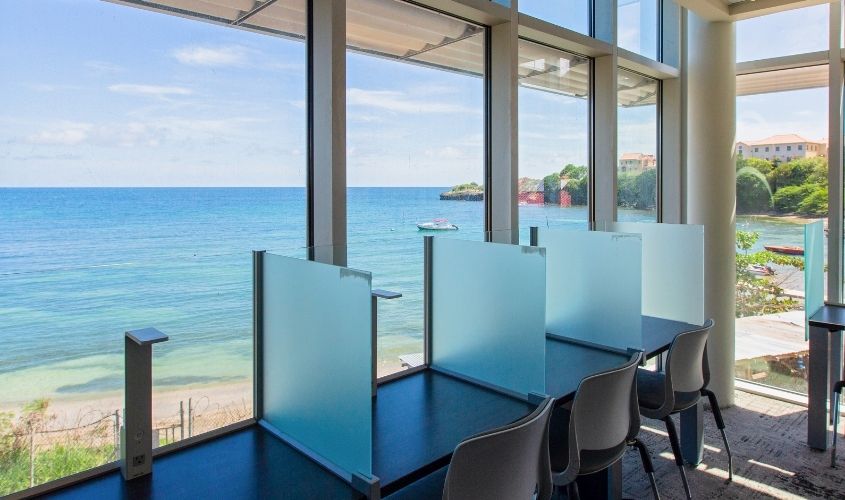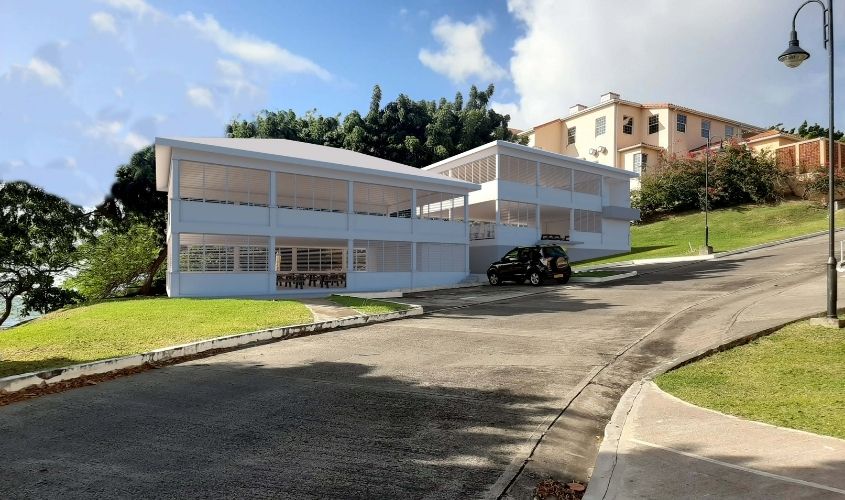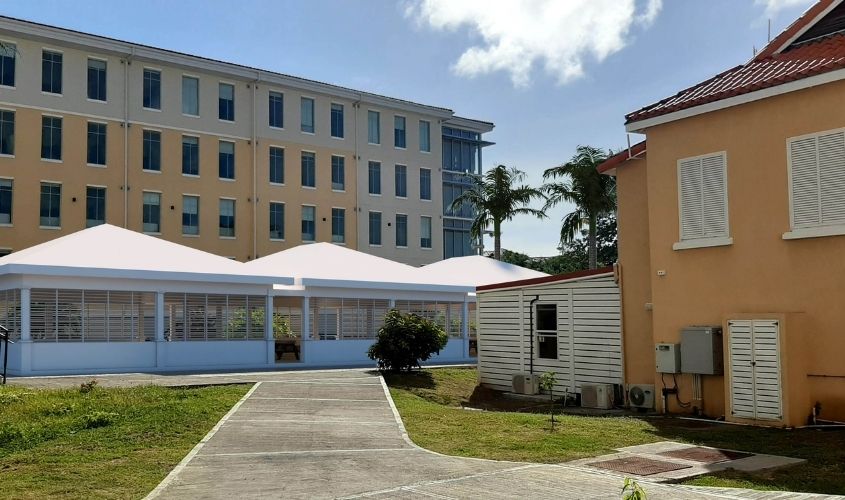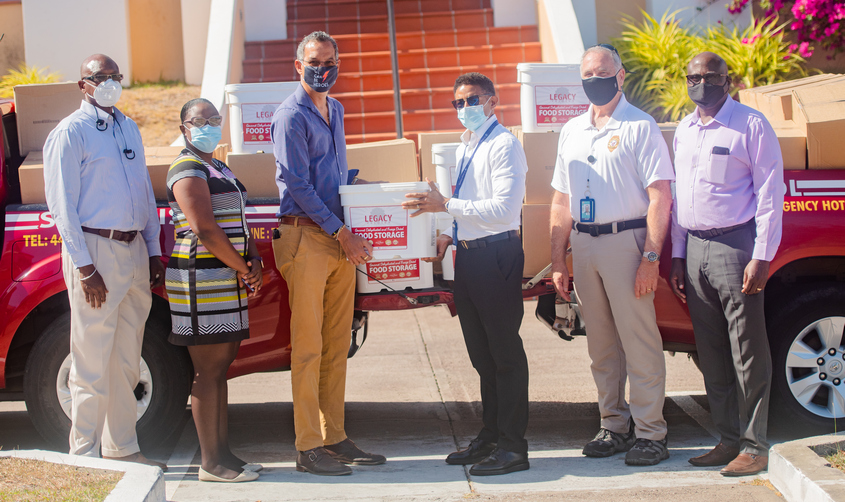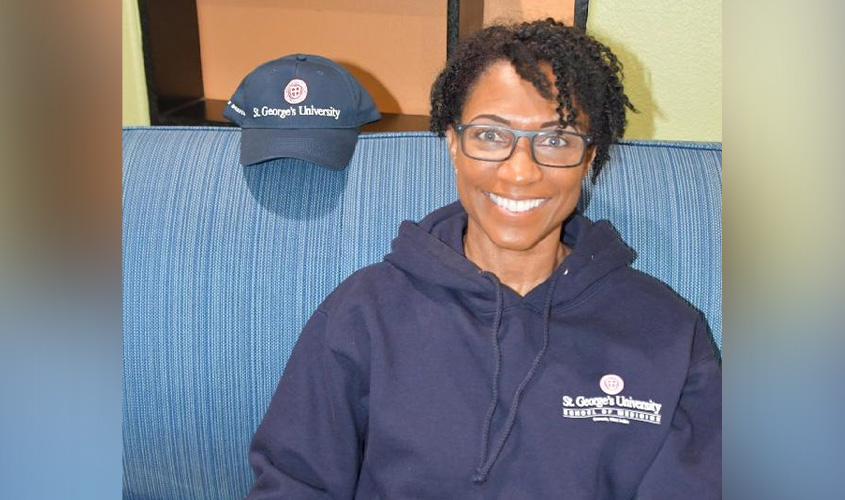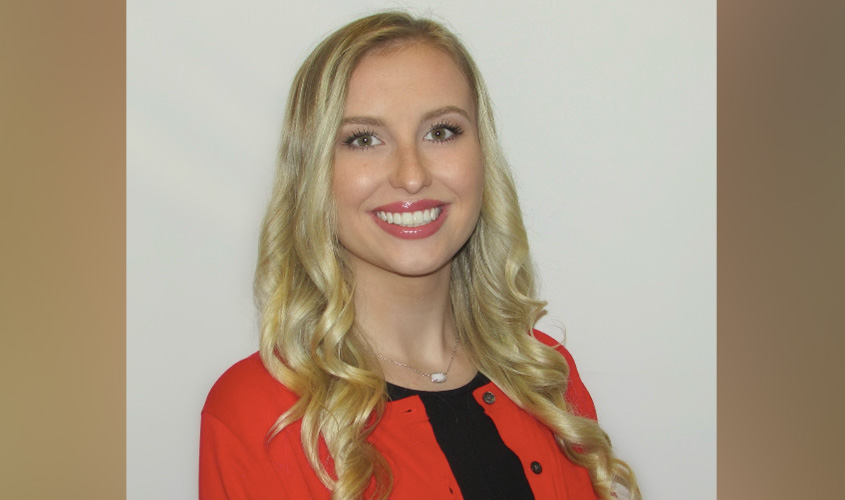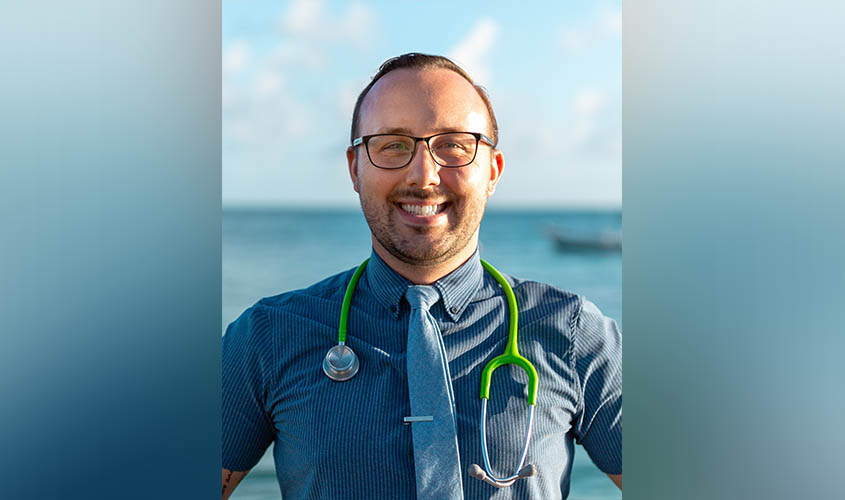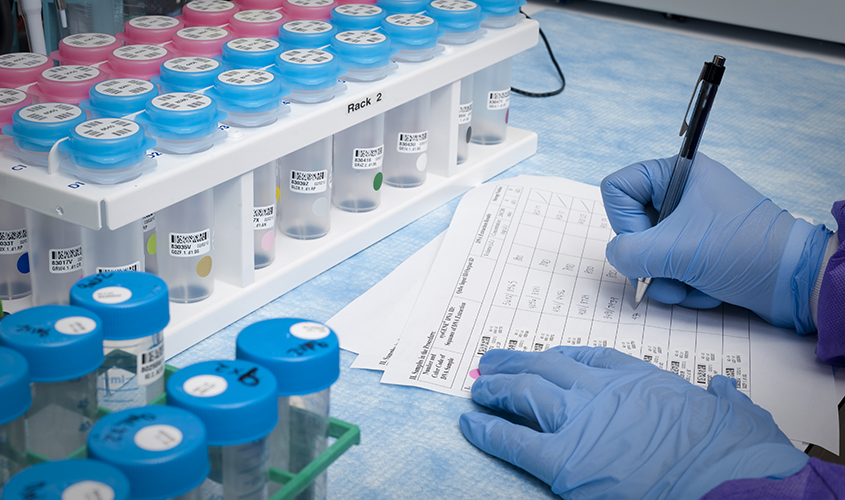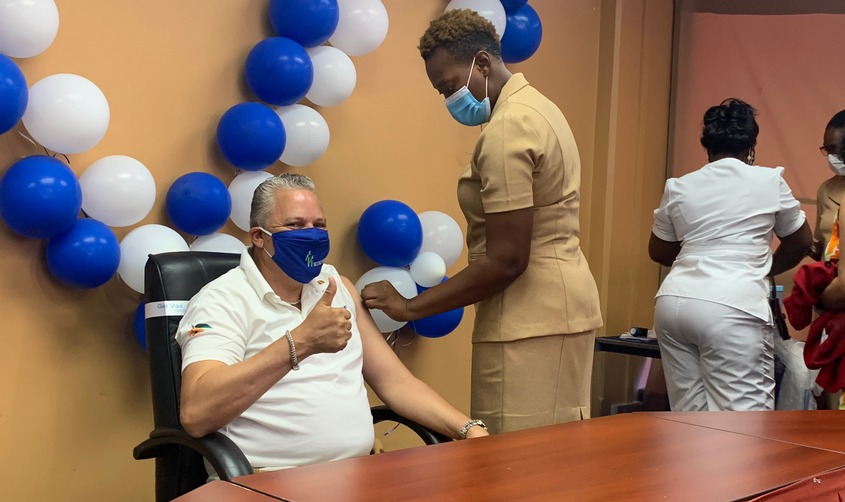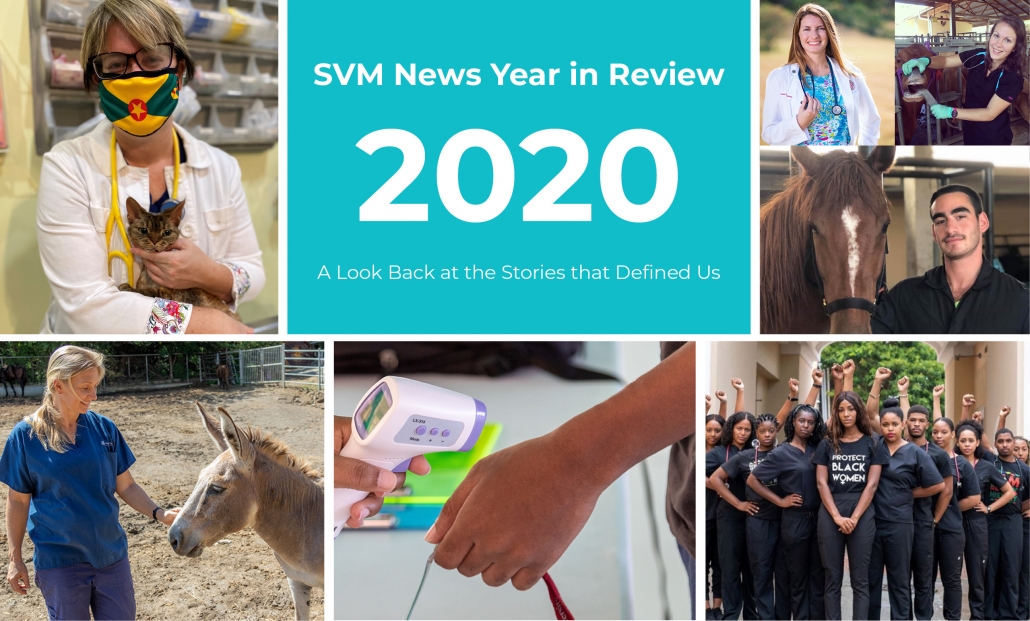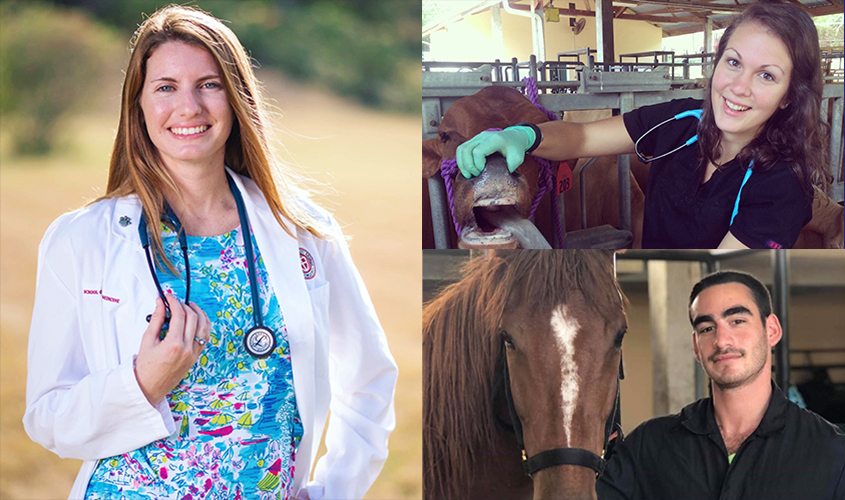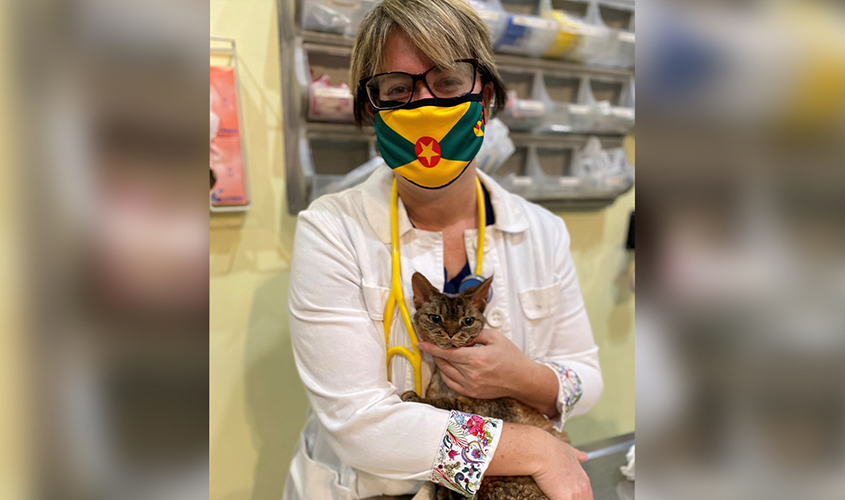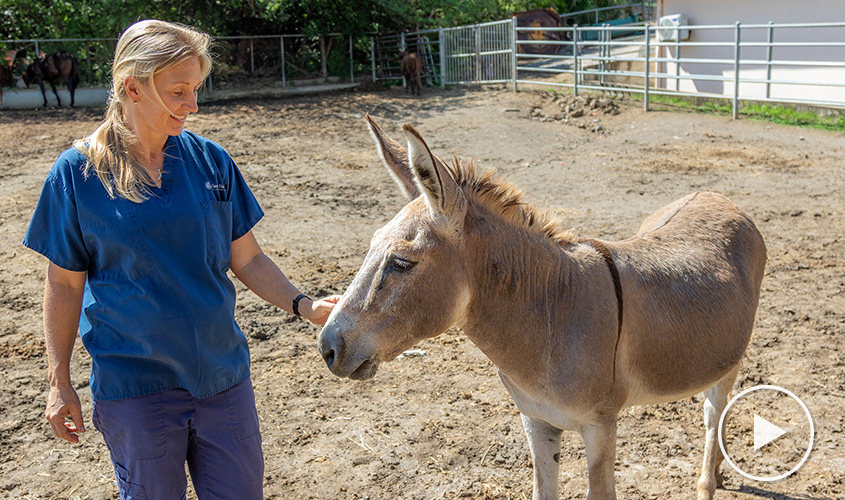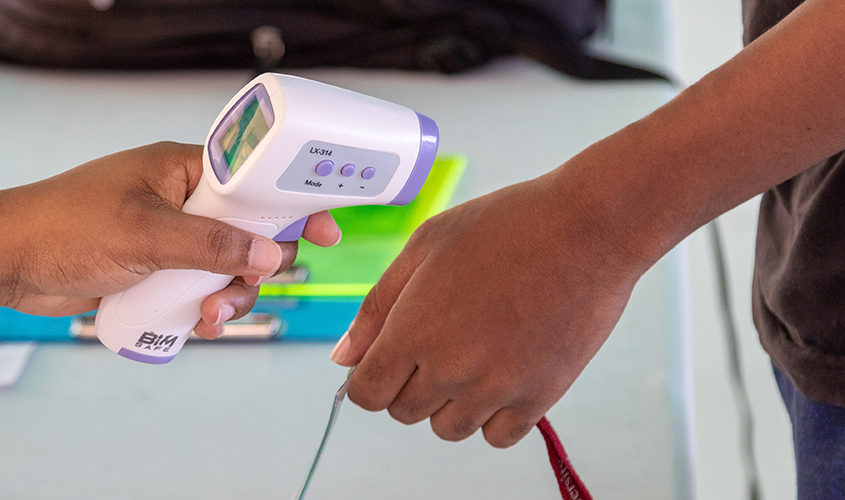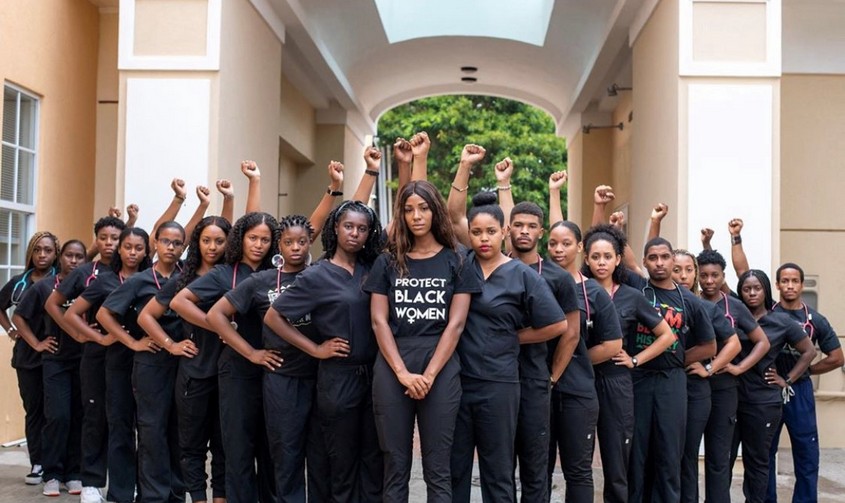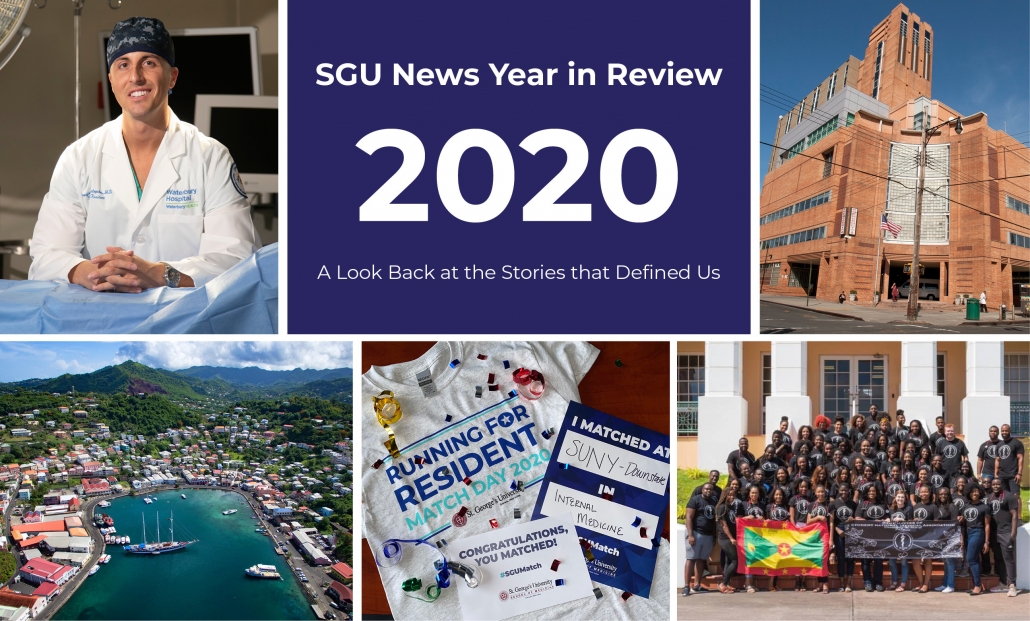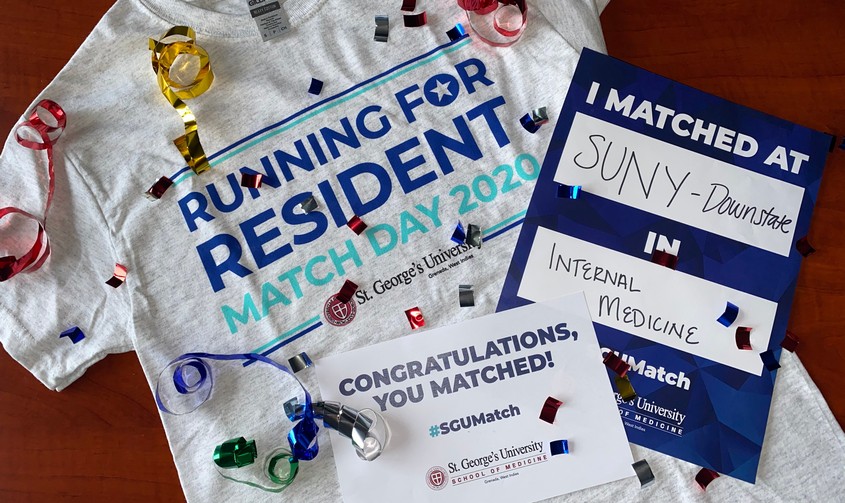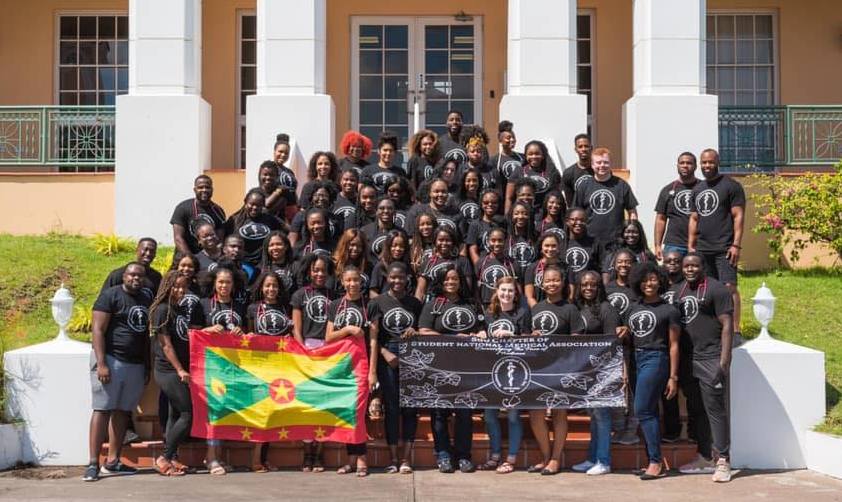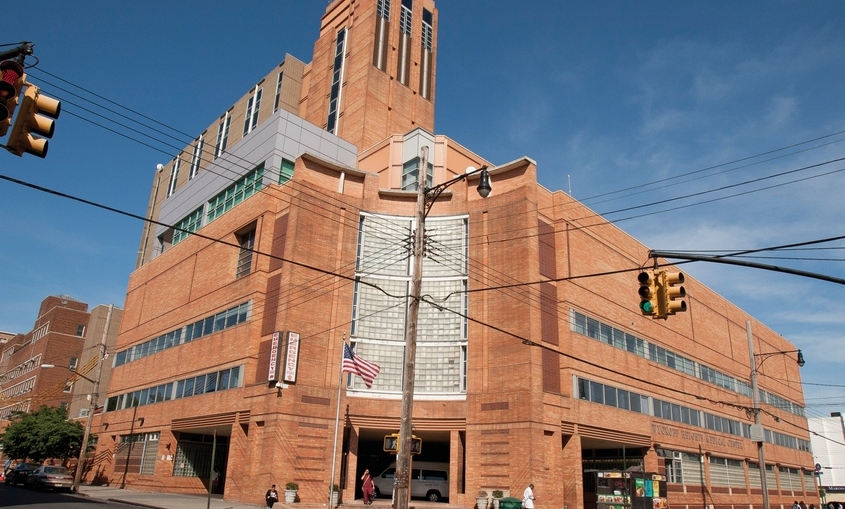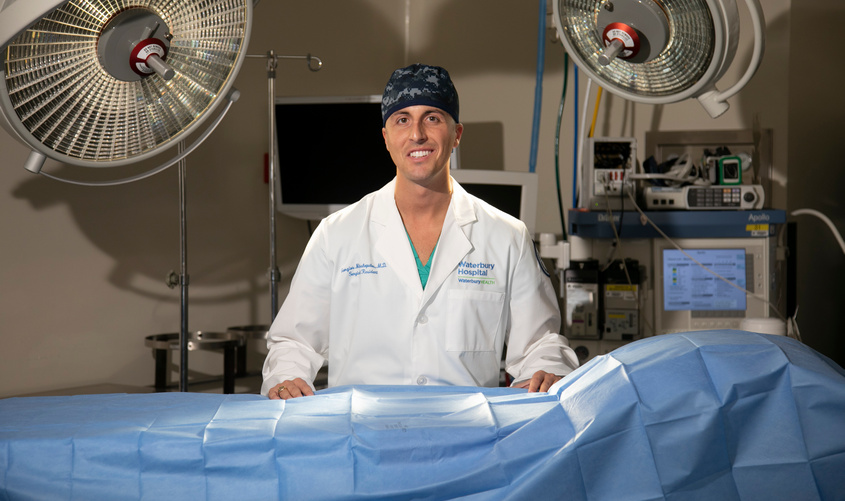2021 MD class overcomes obstacles on way to residency
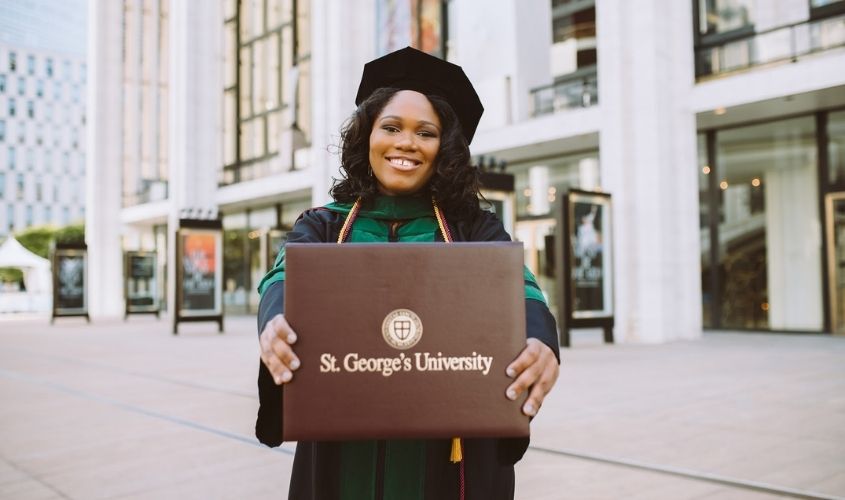
Their journey may have been different than the classes before them, but the St. George’s University School of Medicine Class of 2021’s commitment to excellence and their future profession was very much the same.
In a virtual ceremony held on June 6, SGU conferred Doctor of Medicine degrees to graduates from 47 US states and territories, as well as 35 other countries around the world. The SOM’s newest alumni forged ahead despite hurdles and wrinkles caused by the COVID-19 pandemic and emerged on the other side with a bright future in front of them.
“With your new MD degree, you join the ranks of thousands of physicians, including our proud SGU alumni, and other healthcare workers fighting this pandemic,” said Dr. Marios Loukas, dean of the School of Medicine, in his address. “In joining this fight, you will need to call upon the same perseverance and commitment that carried you through four years of medical school.
“Go forth and do good by taking care of millions of people who will look toward your humanism in science to keep them safe and healthy,” he continued. “Remember that your positive attitude and determination have brought you this far, and life is as much about living the journey as much as it is about eventually reaching your destination.”
This summer, more than 1,080 newly minted SGU physicians will enter residency at hospitals across the US. These positions span 21 specialties, including anesthesiology, emergency medicine, pediatrics, psychiatry, surgery, urology, and more.
“I’m sure many of you have been dreaming of this moment for many years, and I do hope that you’re all taking a moment to stop and reflect and celebrate your success,” said Dr. Lucy Clunes, dean of students at SGU. “As you transition from student to physician, and embark on the next phase of your career, I encourage you to reflect on the values and experiences throughout your tenure at SGU that have led to the success we are celebrating today.”
SGU is the largest source of physicians for the entire United States workforce, with more than 11,600 alumni licensed to practice in the US in 2019 according to the Federation of State Medical Boards.
Faculty members honored
Dr. Charles Modica, chancellor and co-founder of SGU, also bestowed the St. George’s University Distinguished Service Award to Dr. Stephen Weitzman, former dean of the School of Medicine, and Dr. Vishnu Rao, longtime dean of students and the current dean of university alumni affairs.
Dr. Weitzman joined SGU in 1978 as a visiting professor and remained on the faculty as a professor, chair of medicine, dean of clinical studies, and dean of the SOM.
“Dr. Weitzman really is a special person, but I think the most special thing about him is that his name is on the diplomas of more physicians in the US—having signed them—than any other person in the world,” Dr. Modica said. “He helped set up the clinical programs, he nurtured them, and he became involved with each and every student’s education through them.”
Dr. Rao started at the University at its inception, joining as a professor of anatomy before serving as the University’s Dean of Students for more than three decades. He will stay on as a member of SGU’s alumni affairs department.
“I’m so proud to be able to work with him in the future to make sure we are involved with and look after the thousands of graduates of the University, in all fields,” Dr. Modica said.
– Brett Mauser
